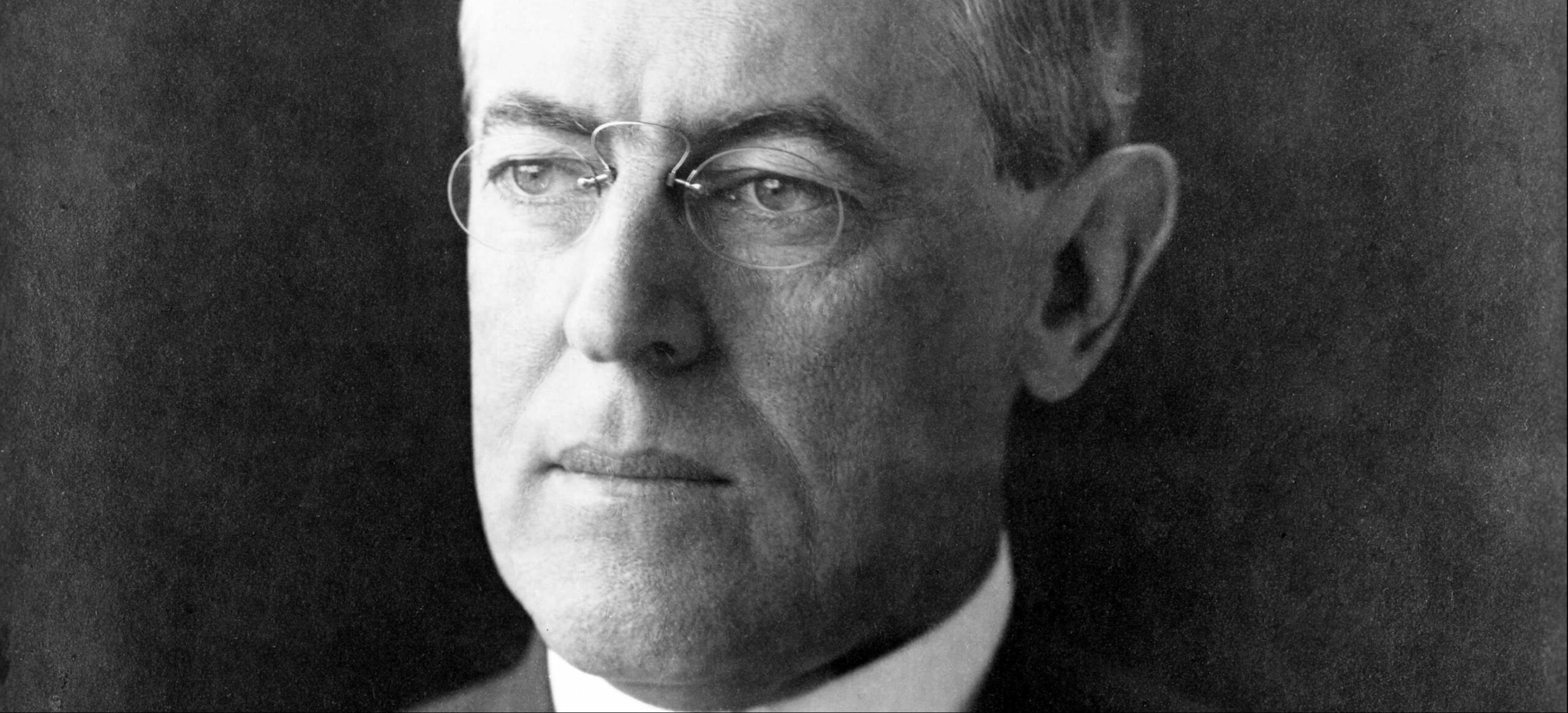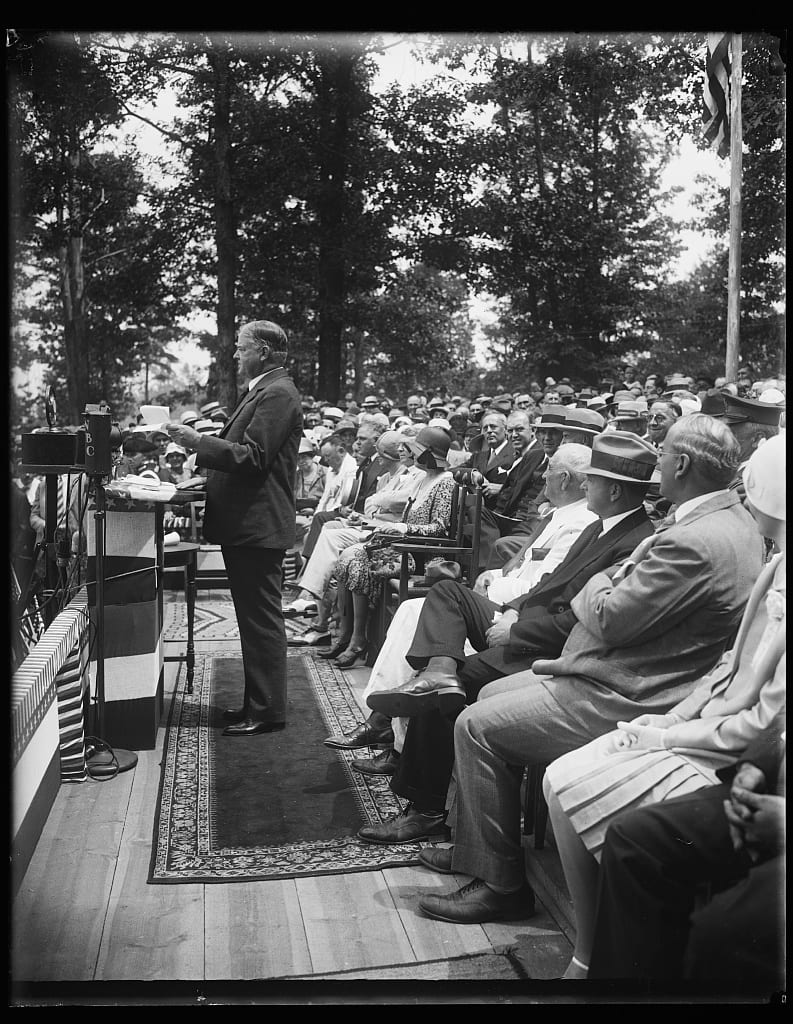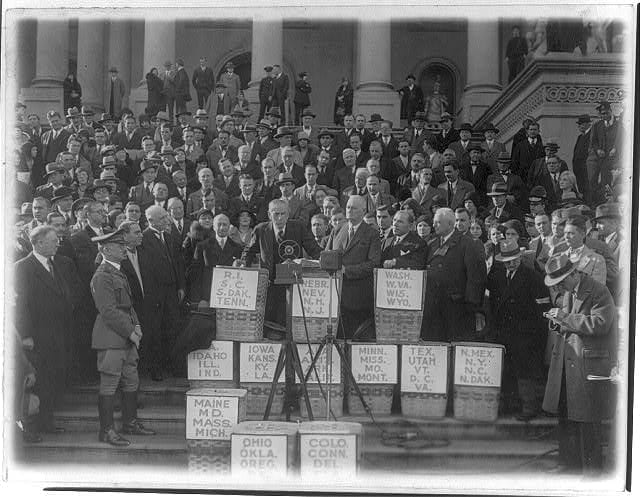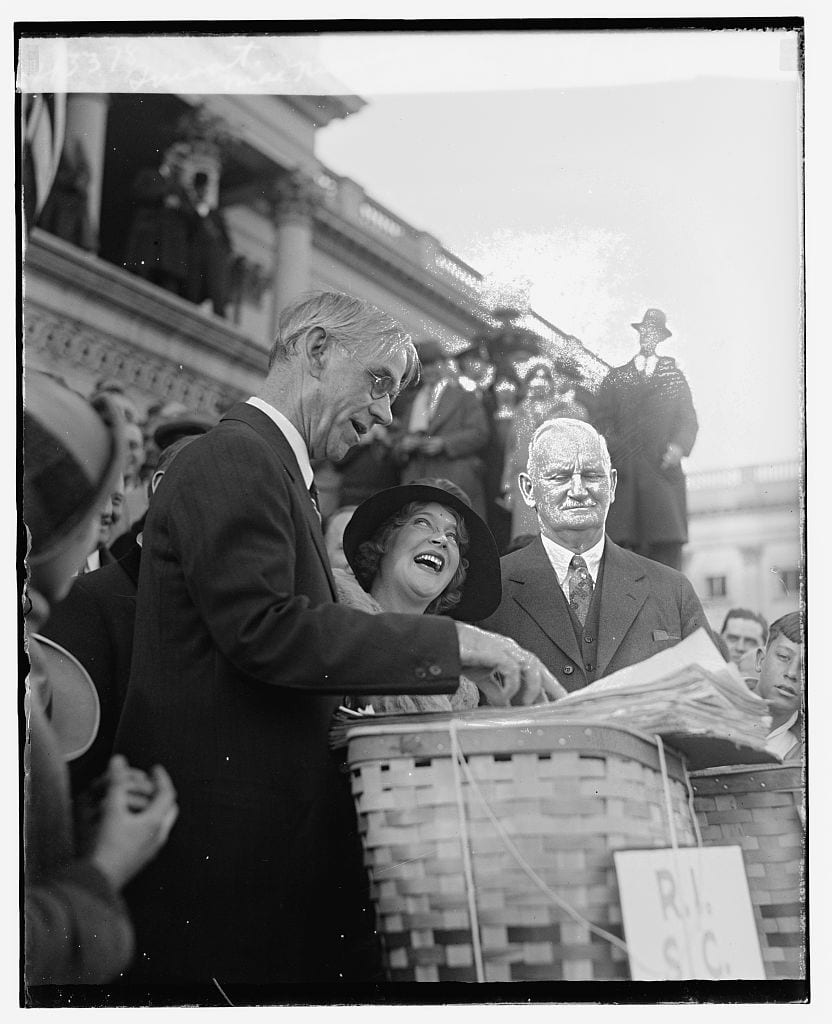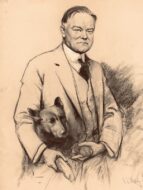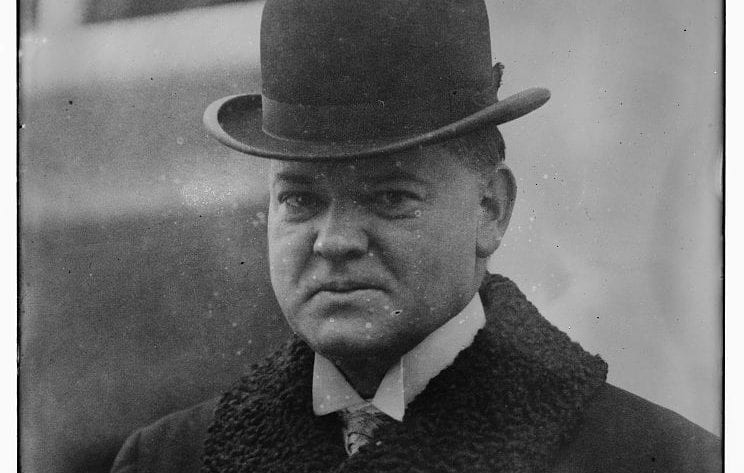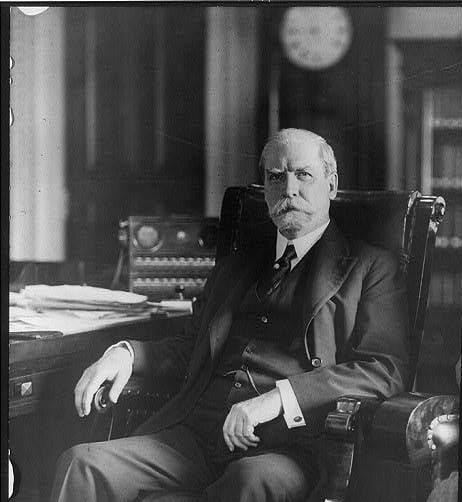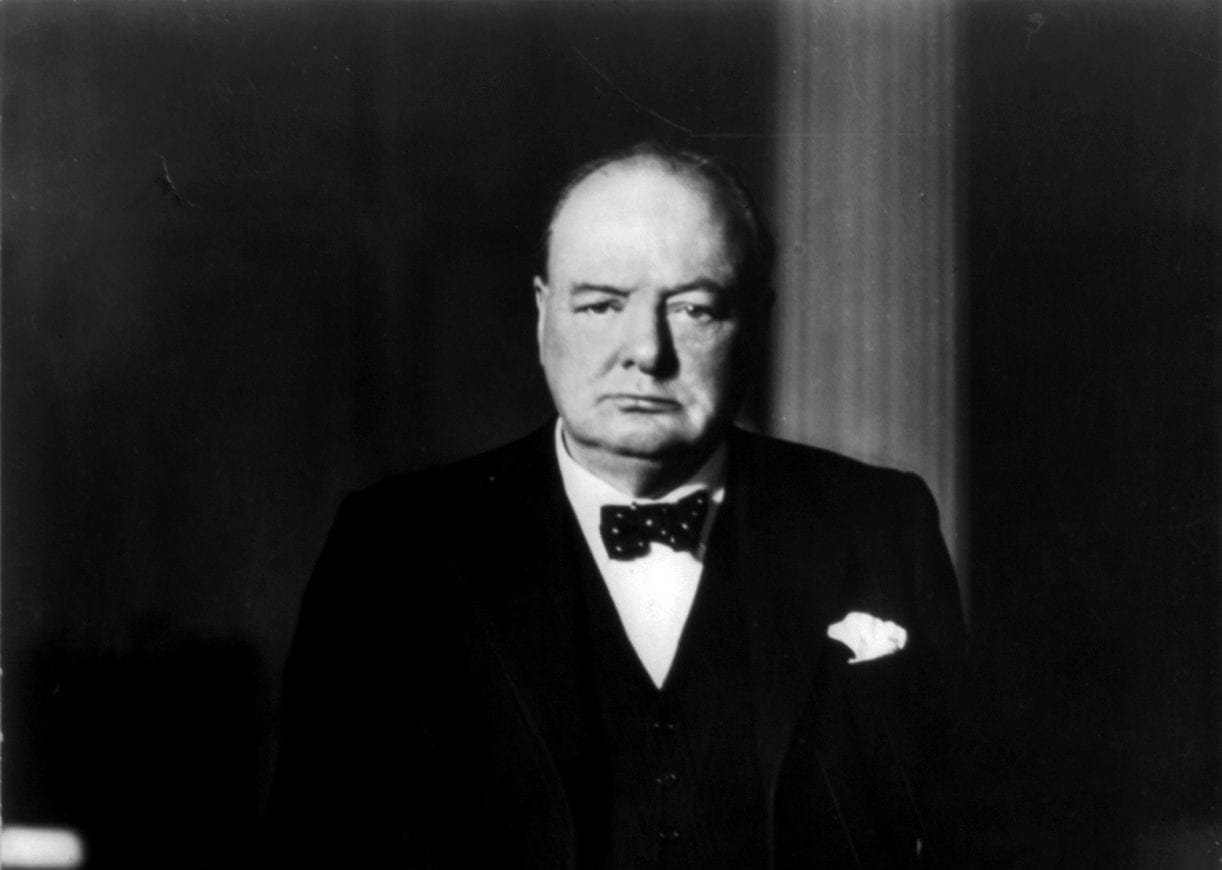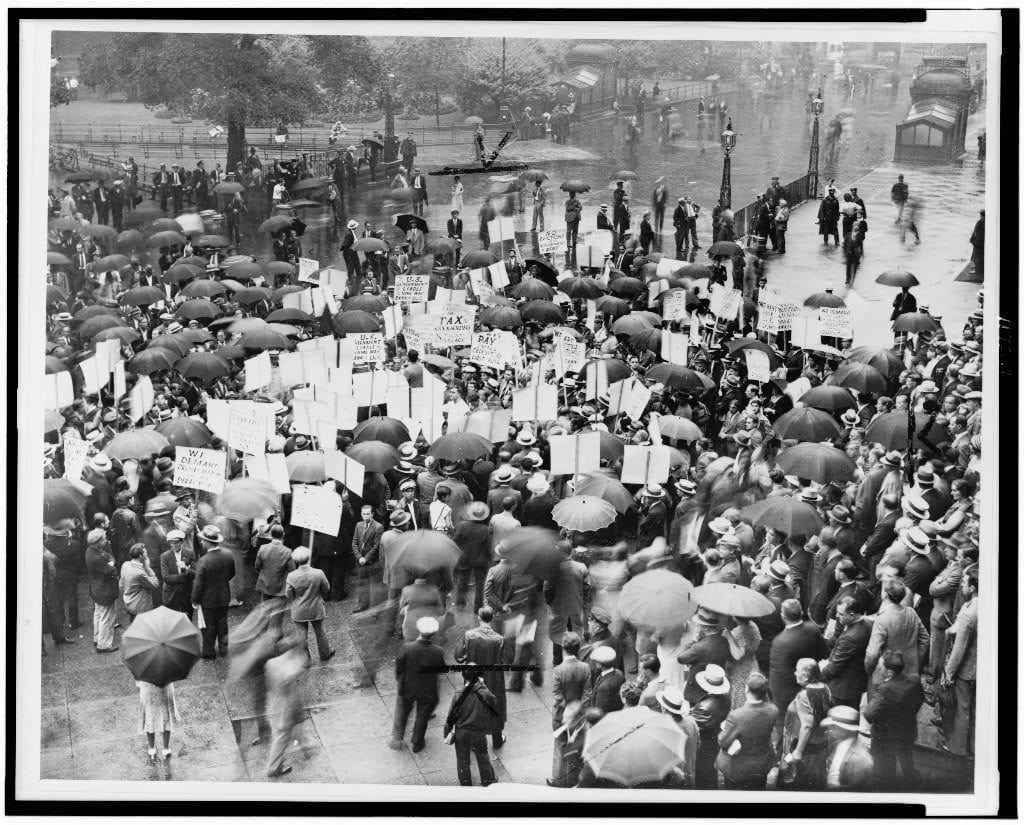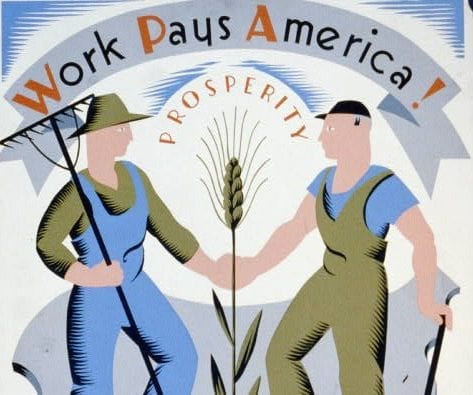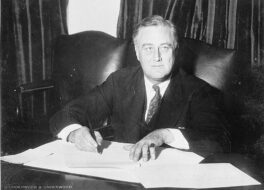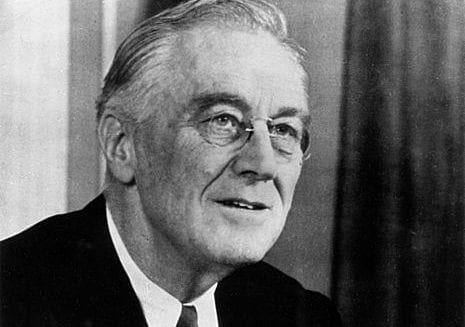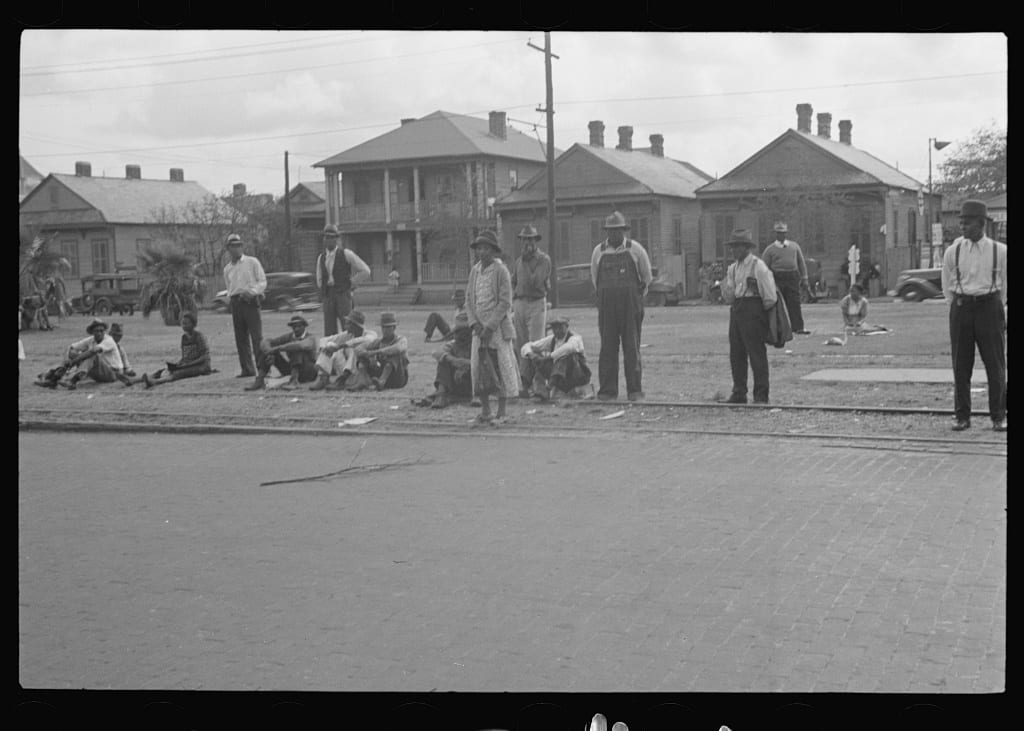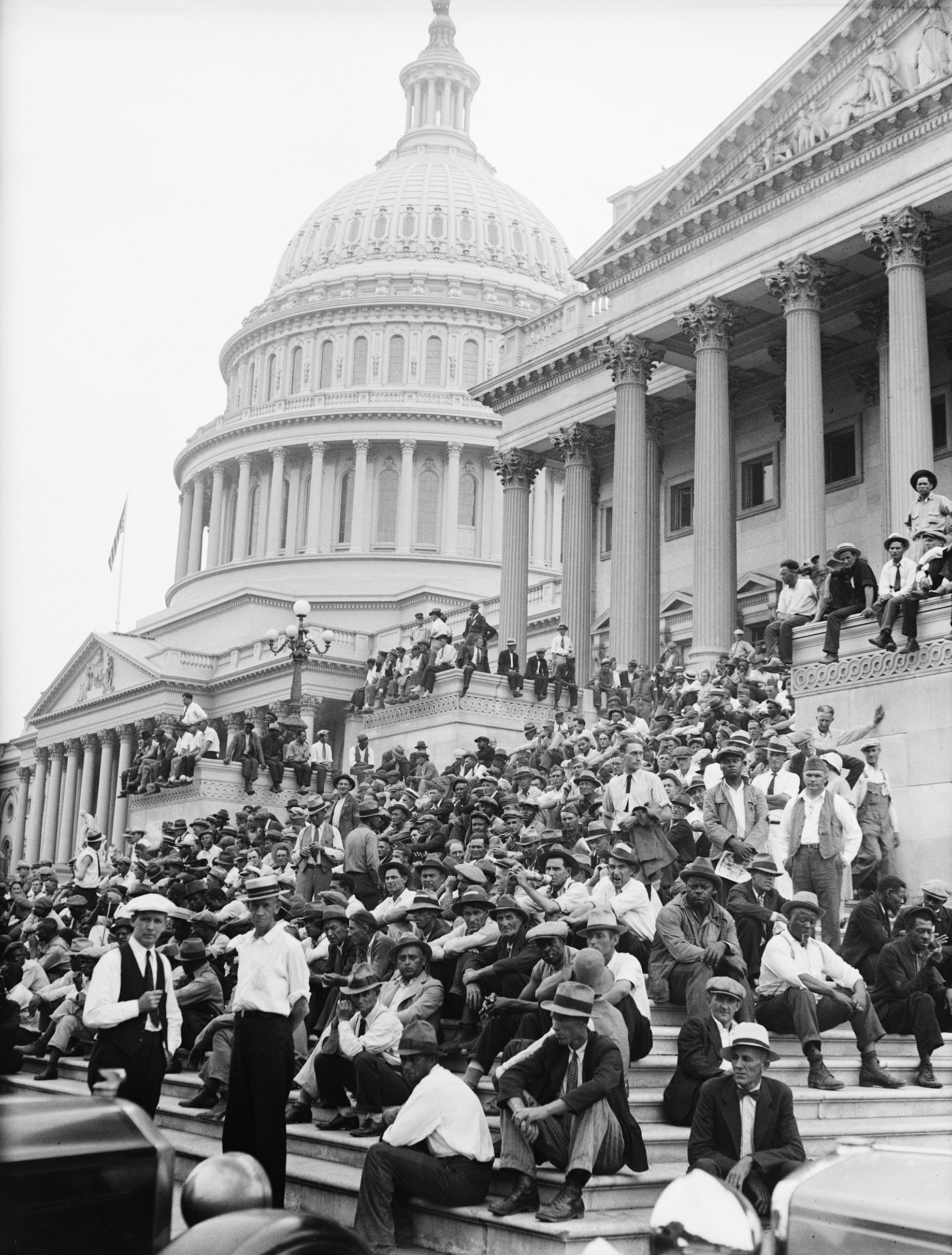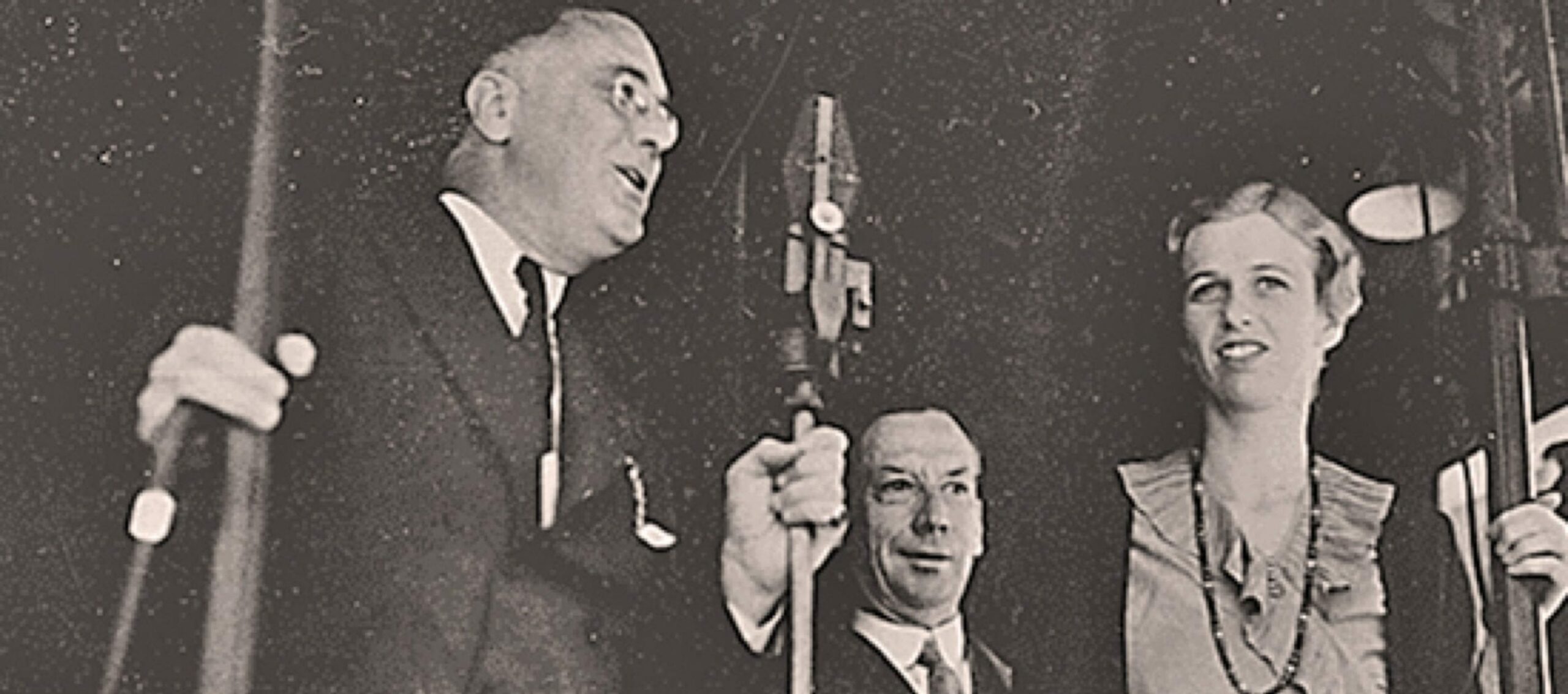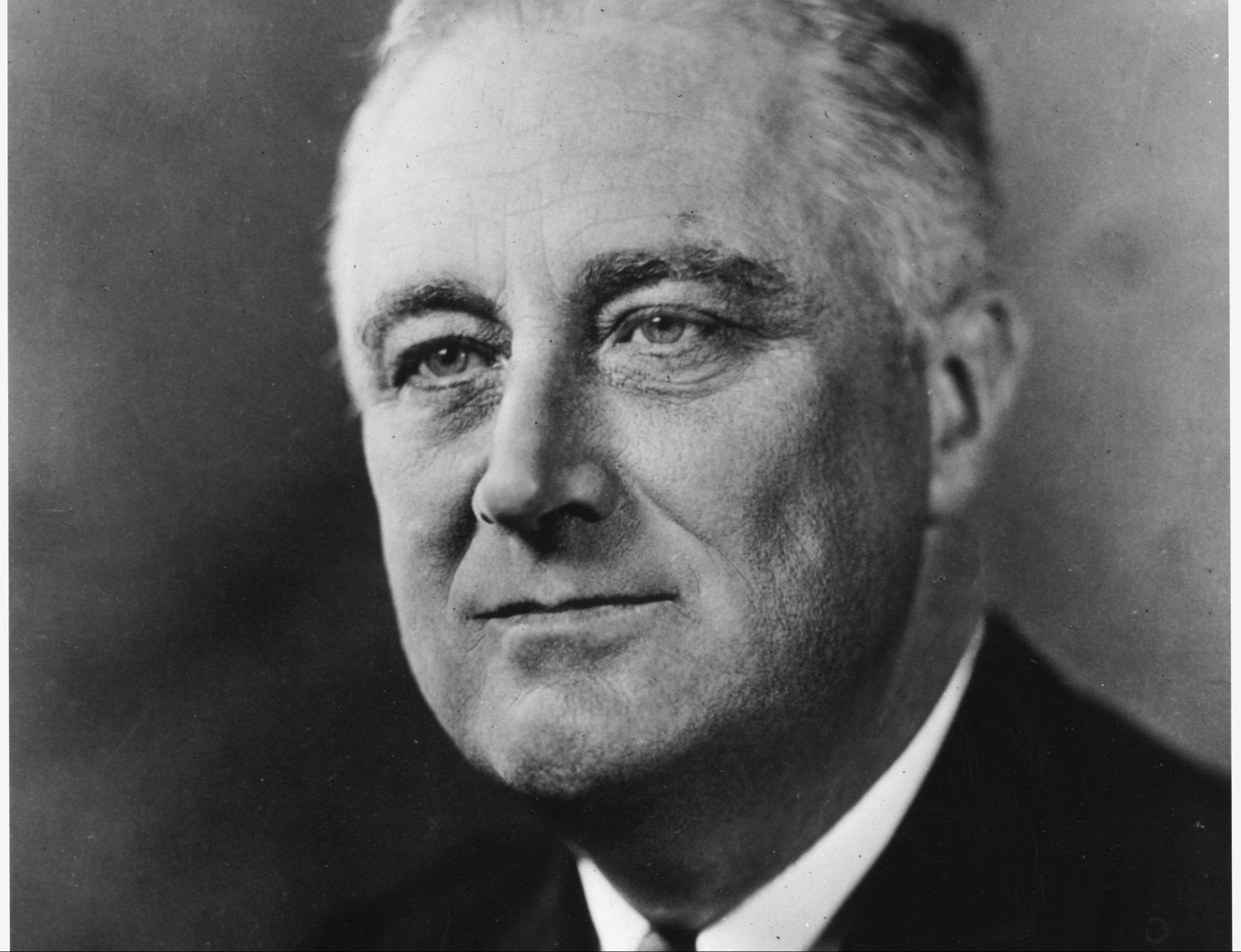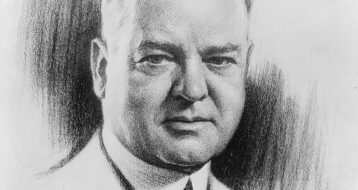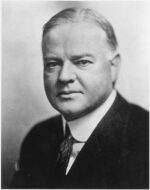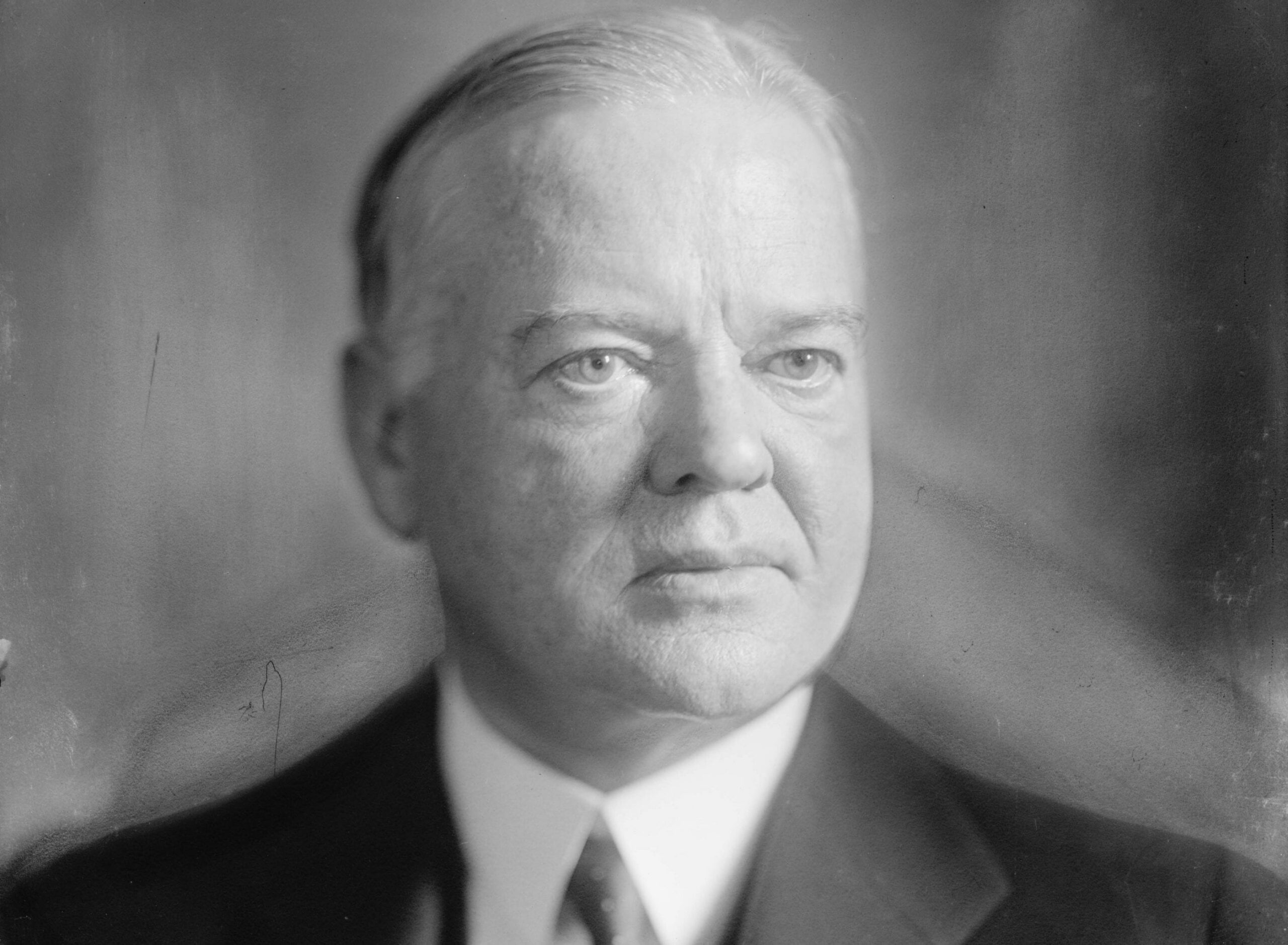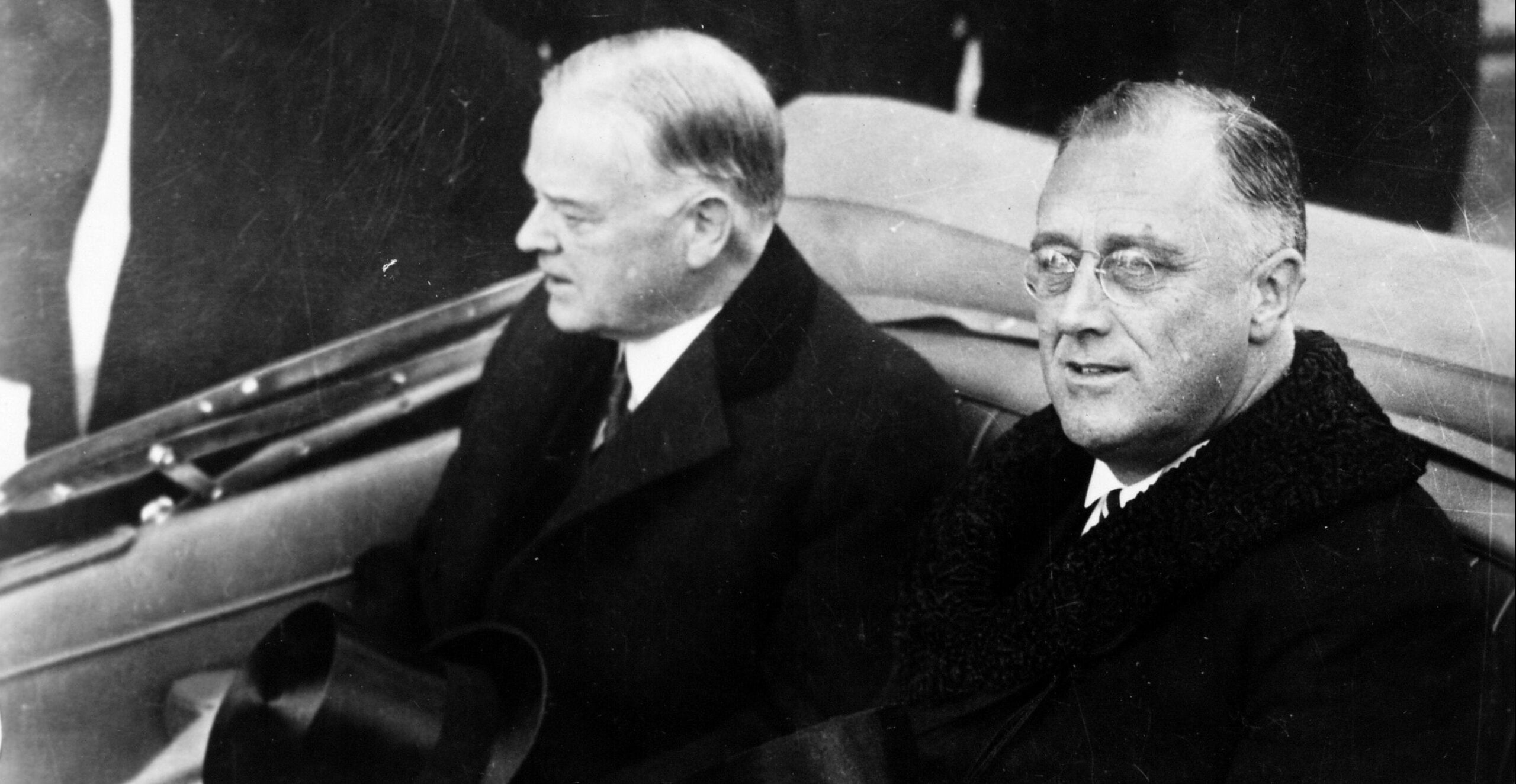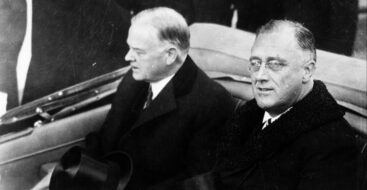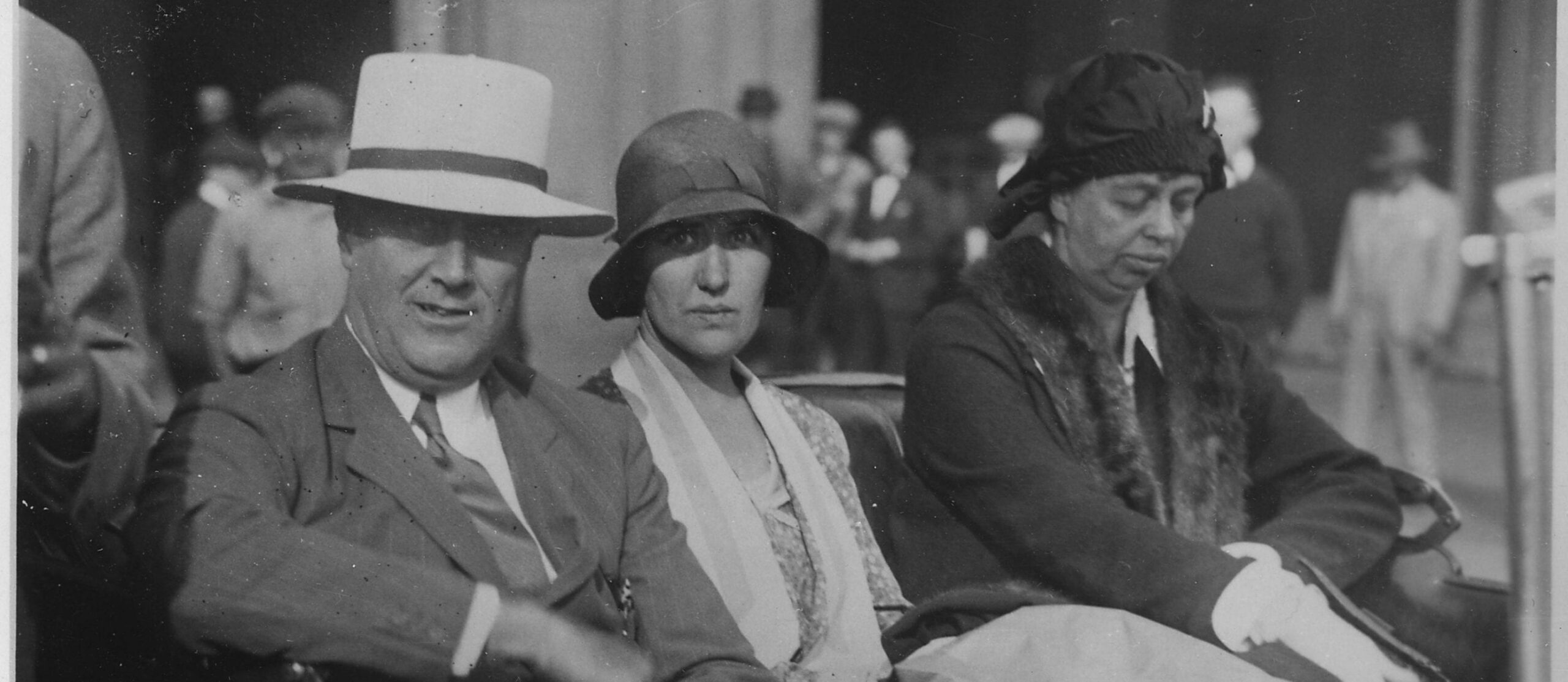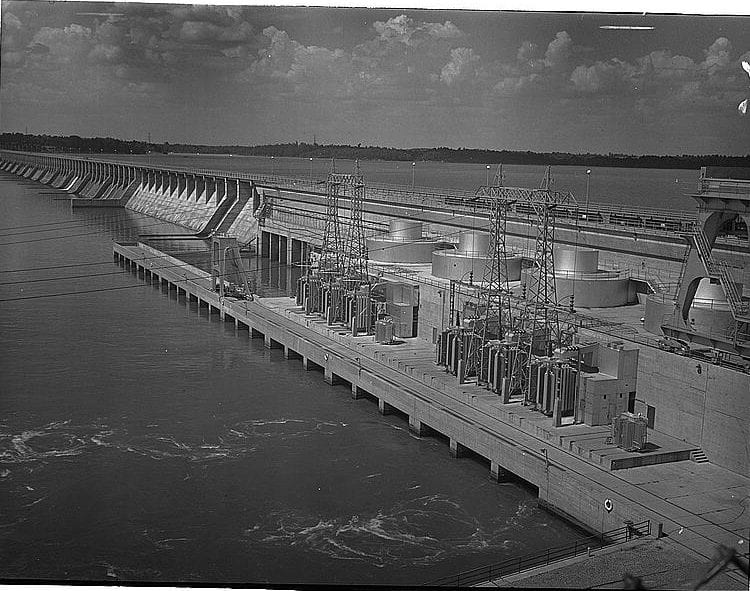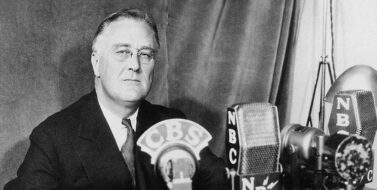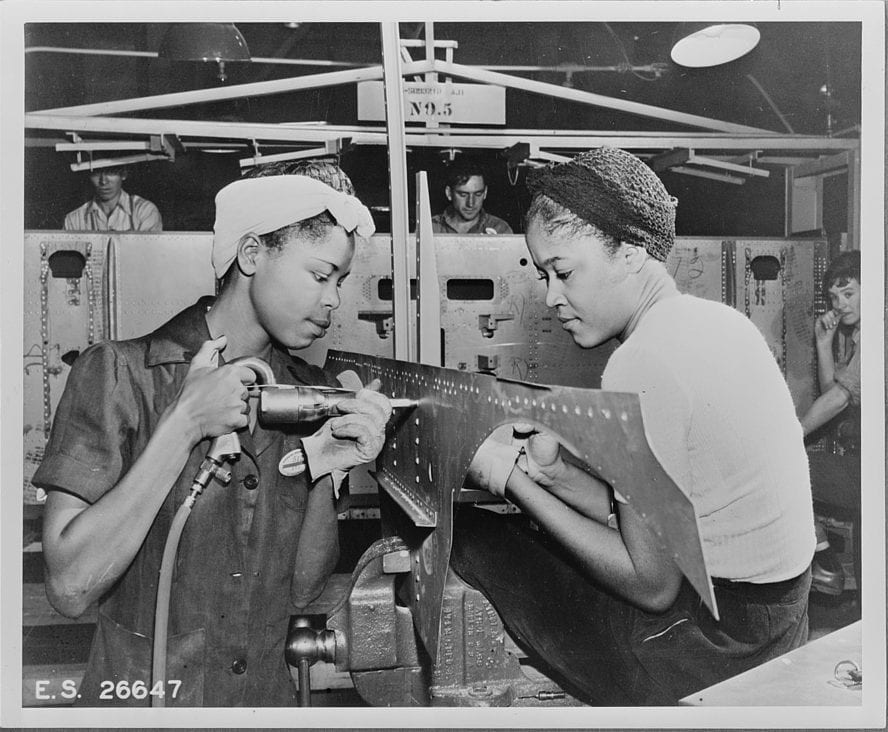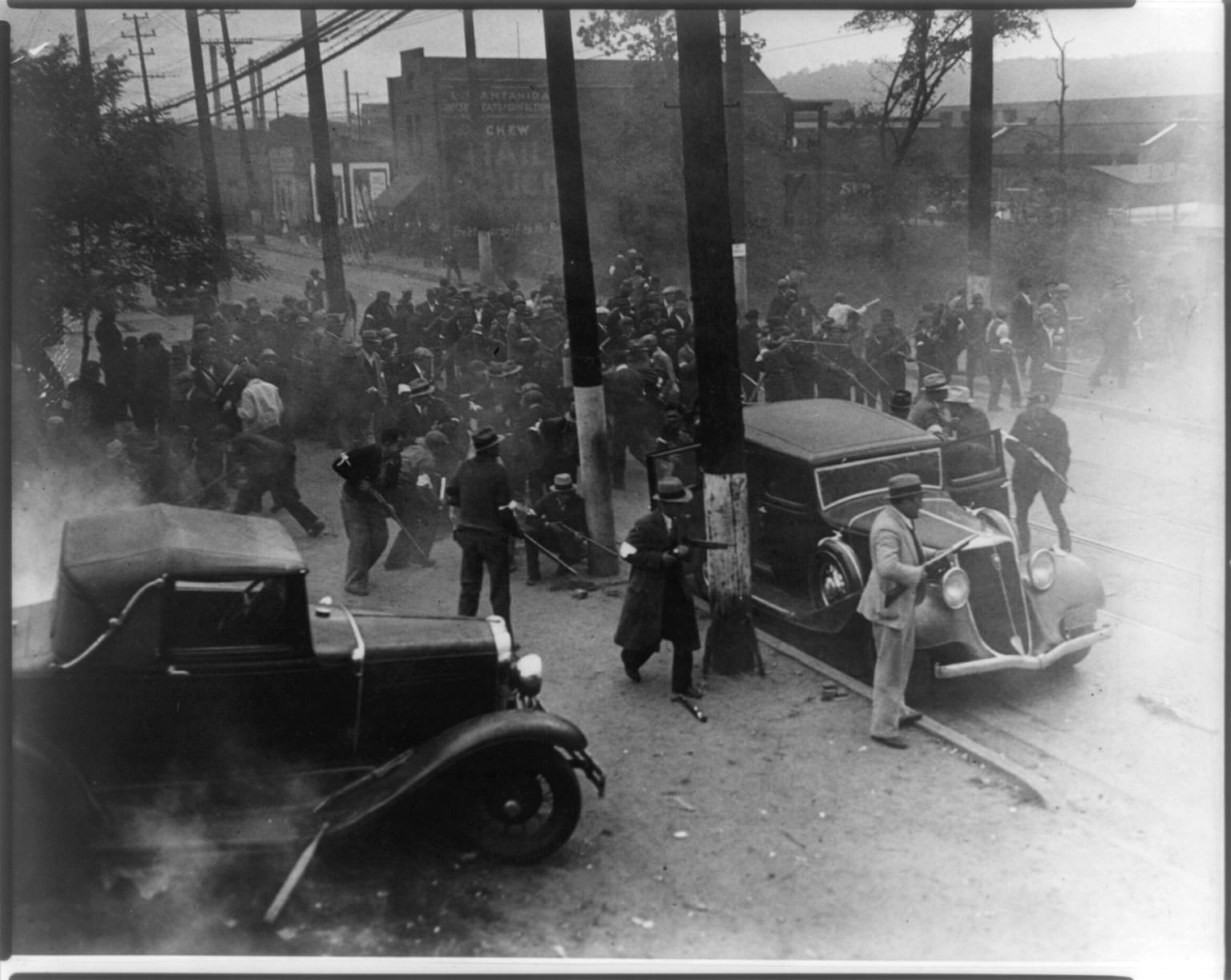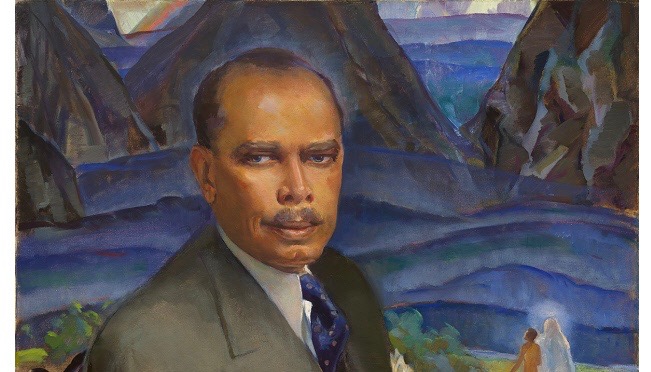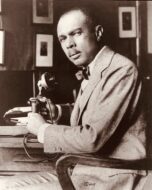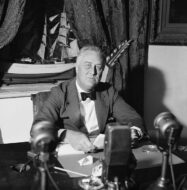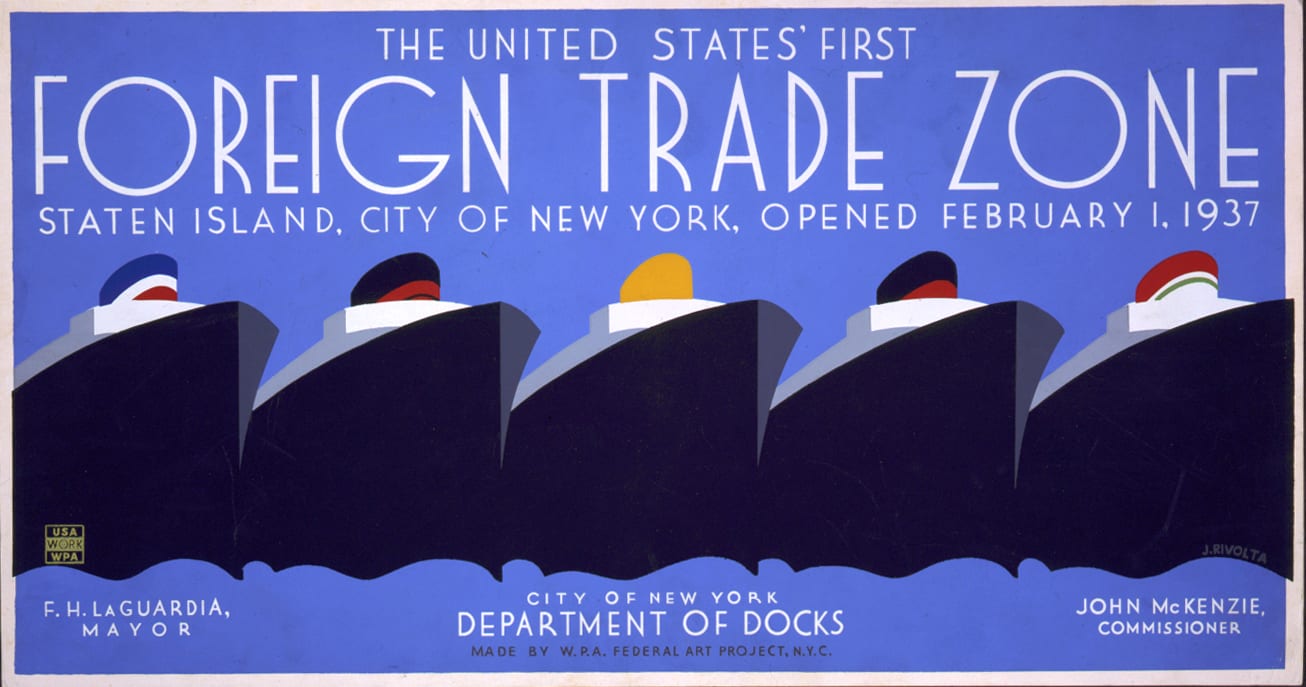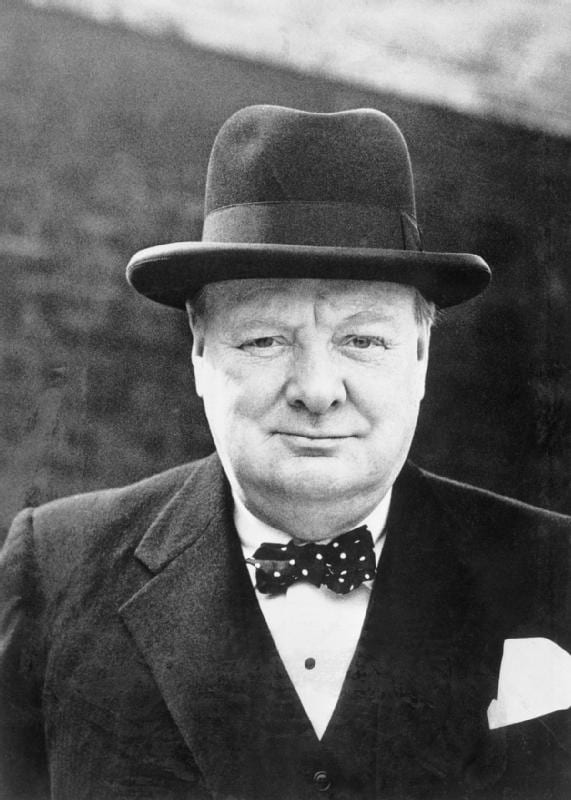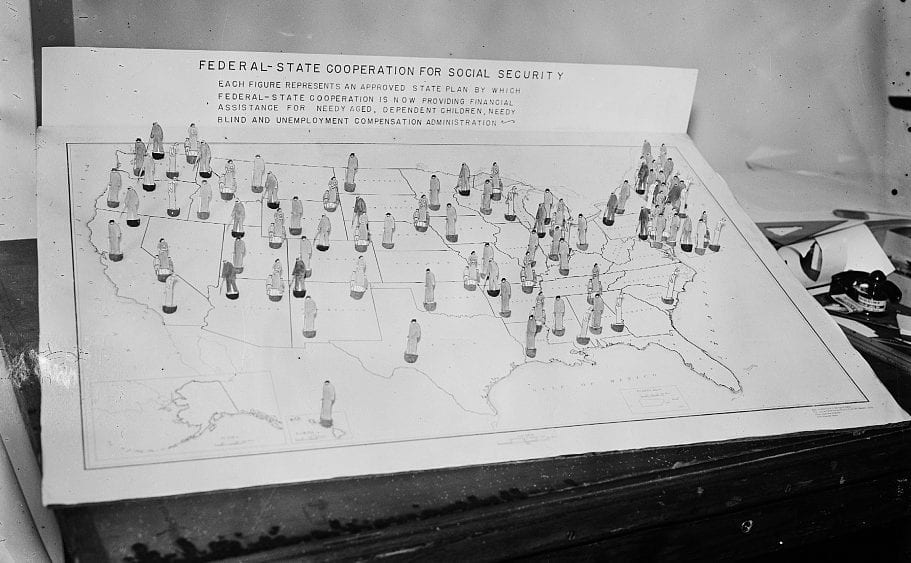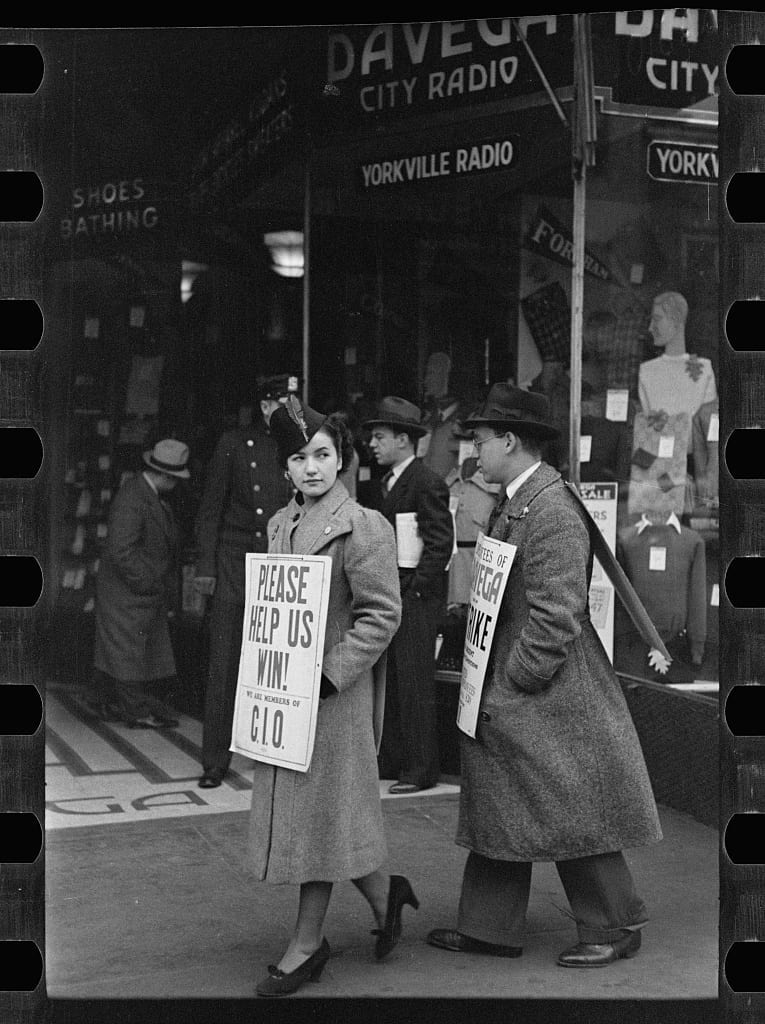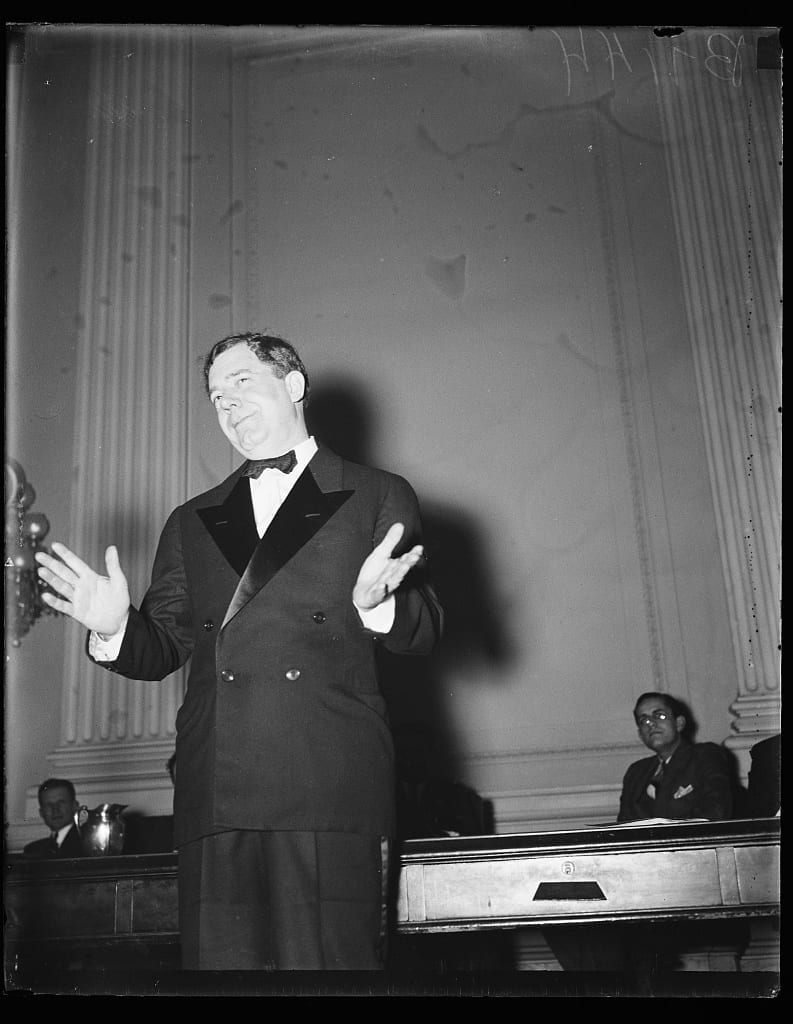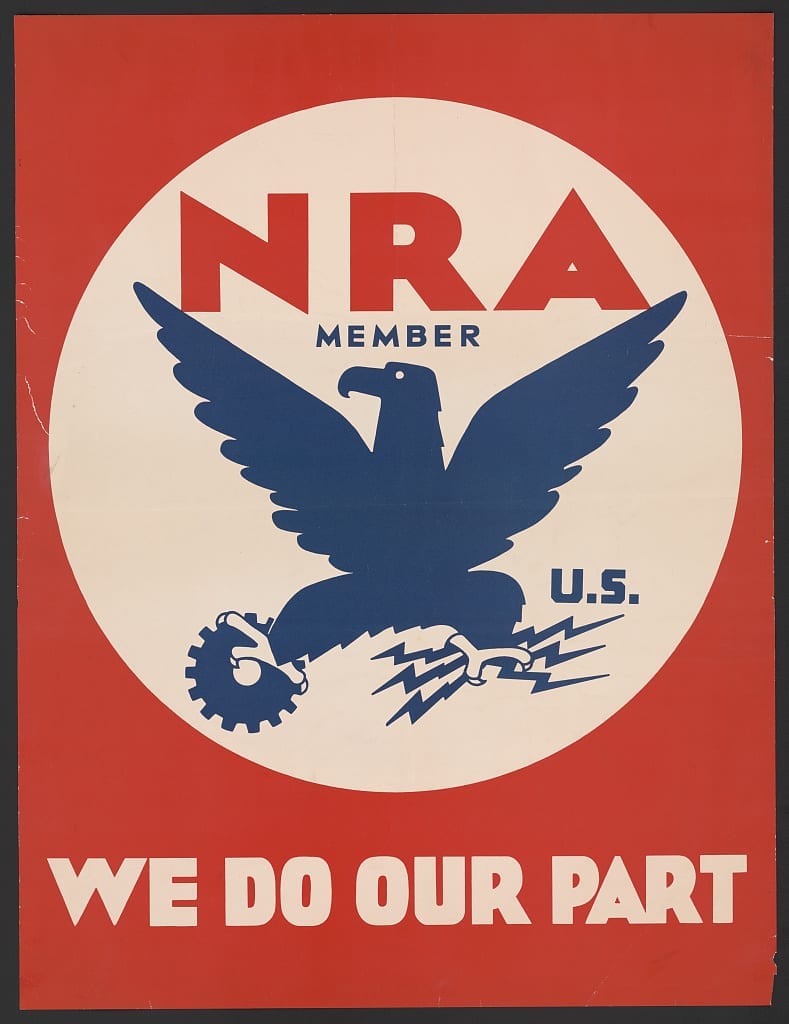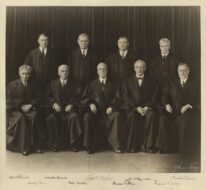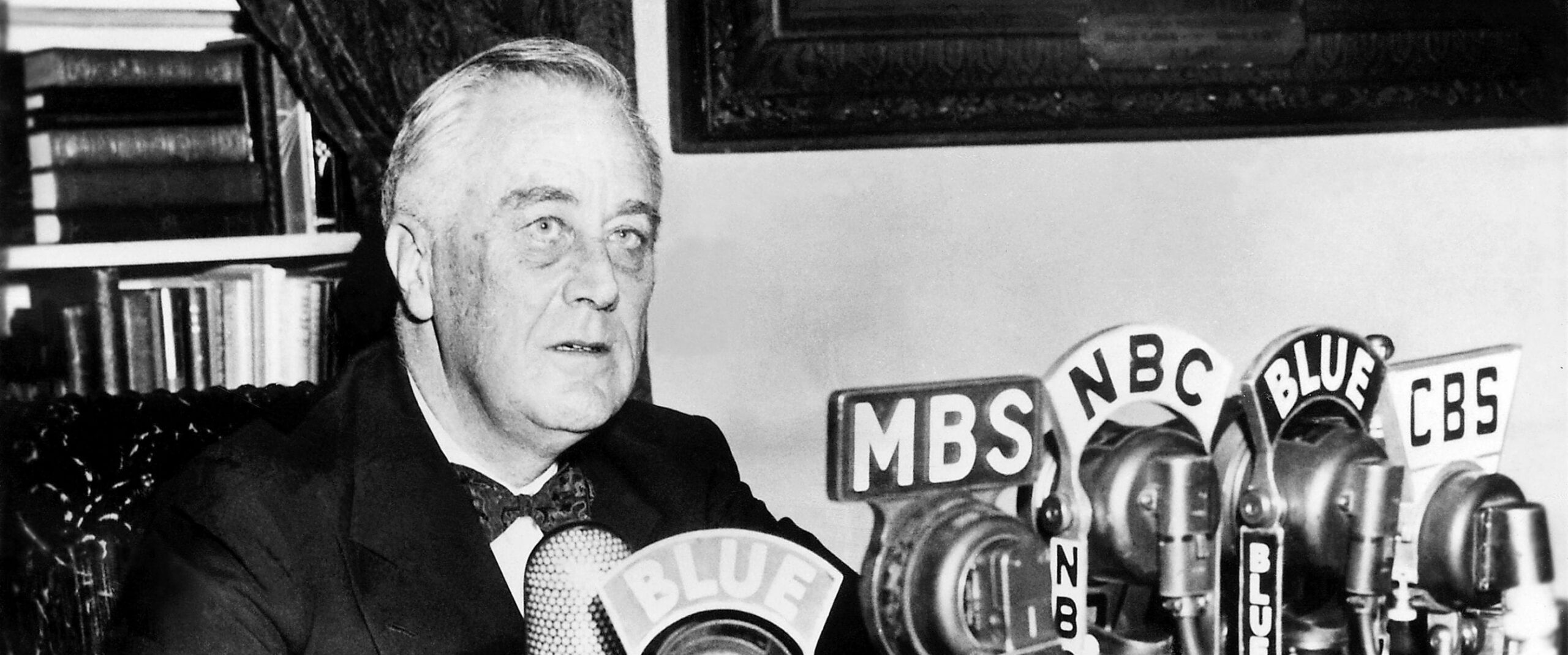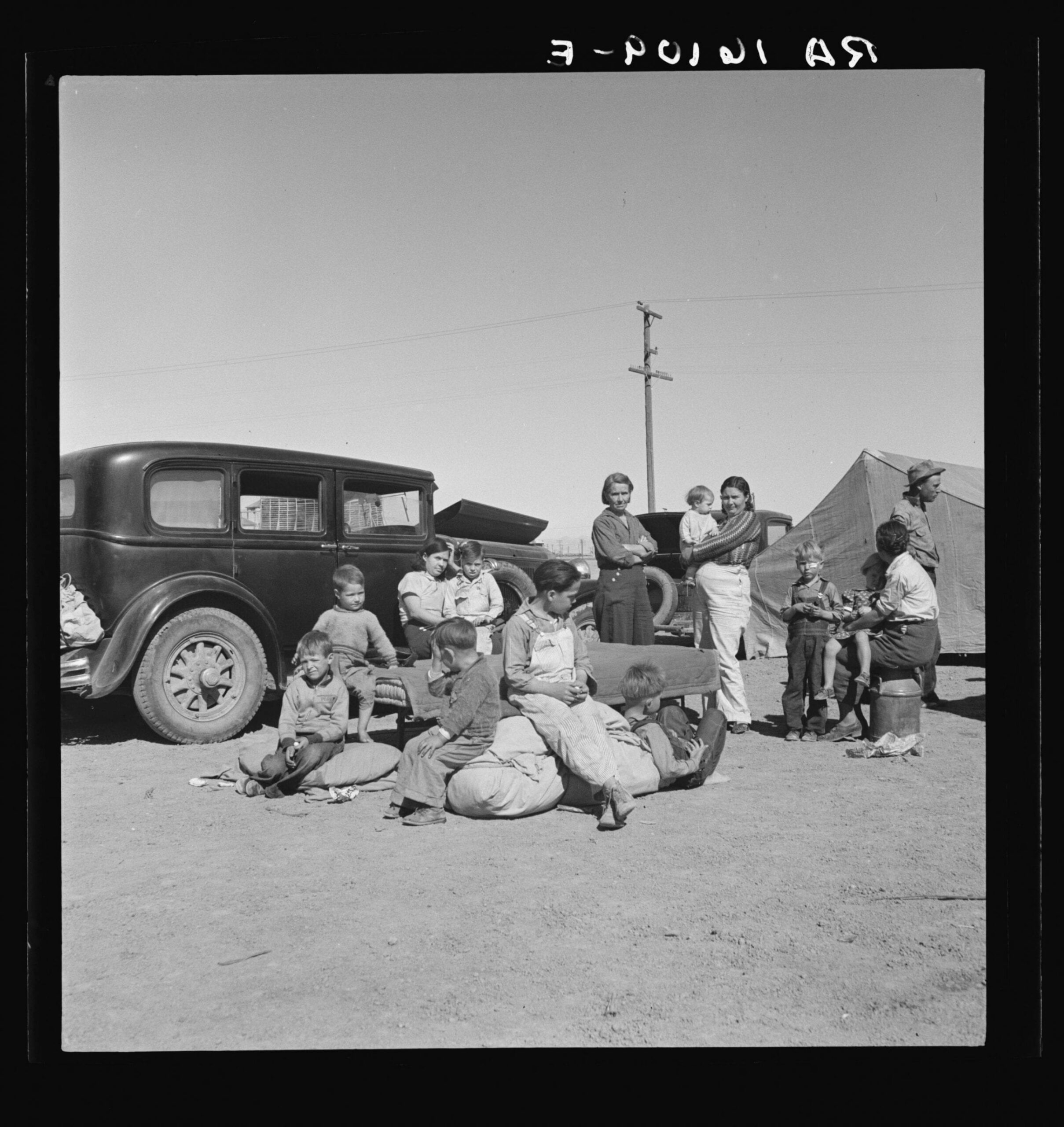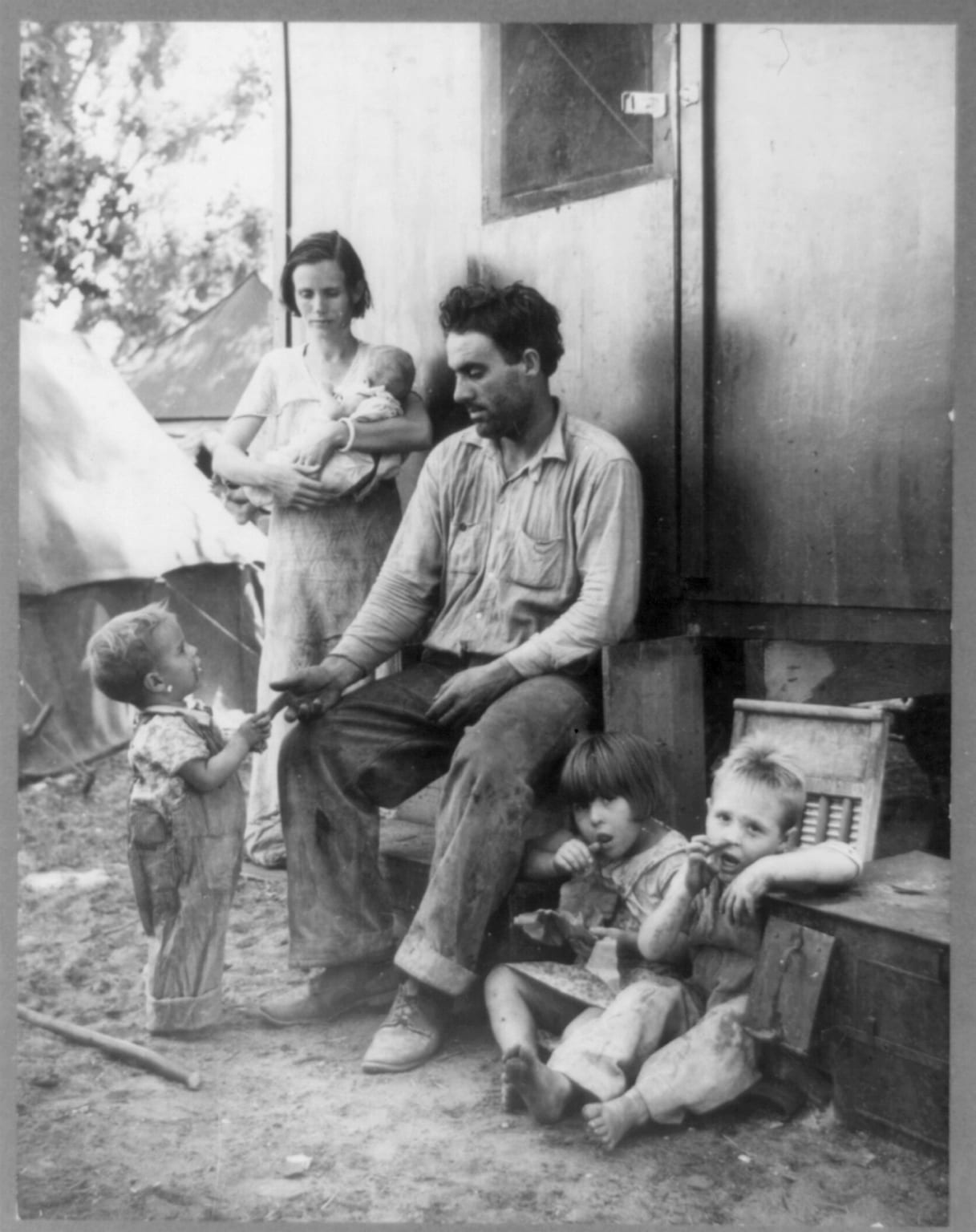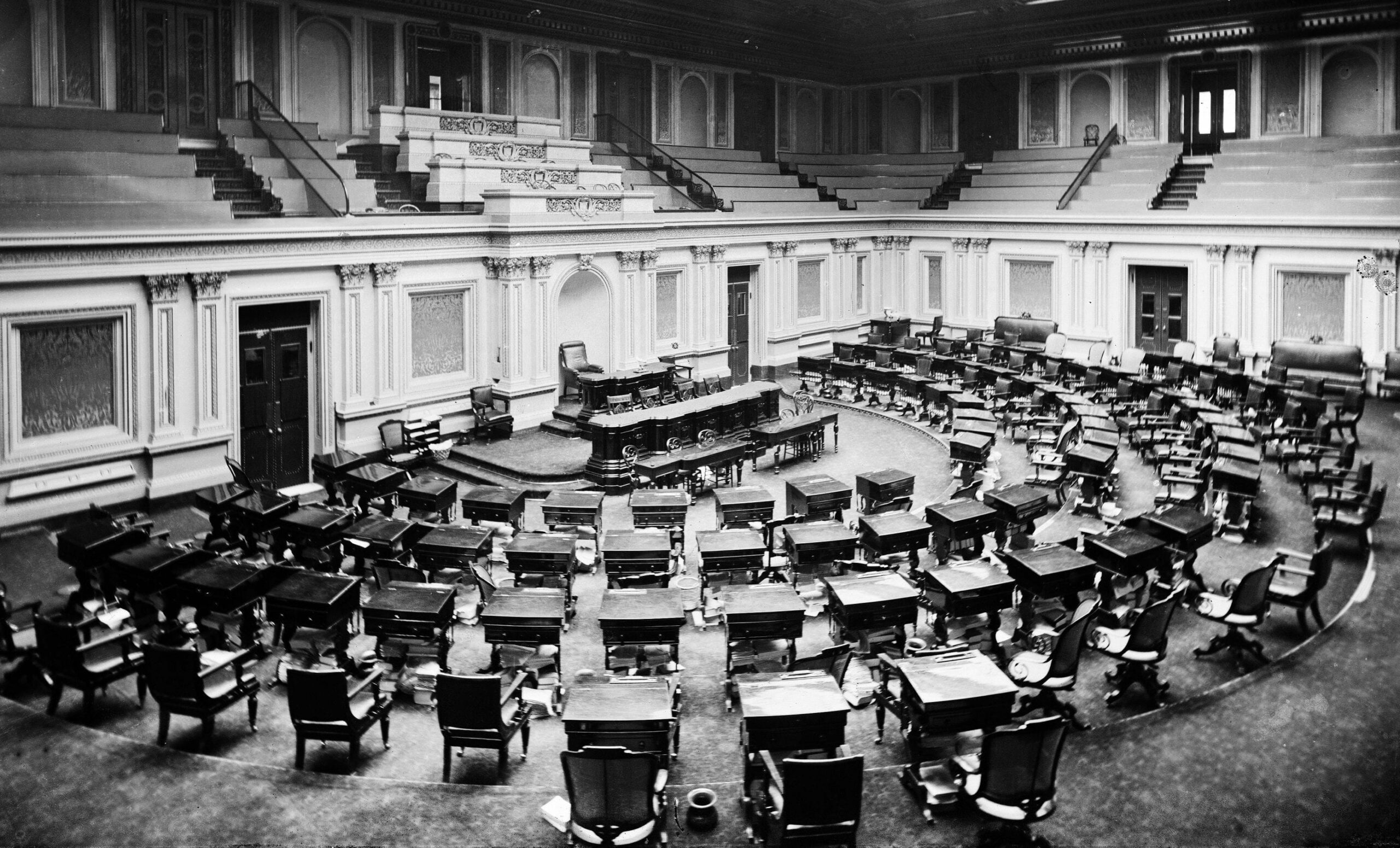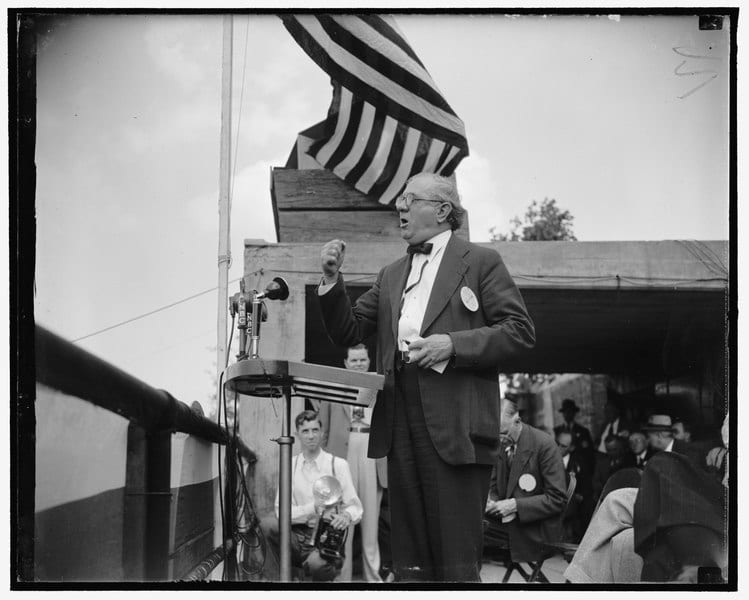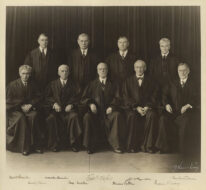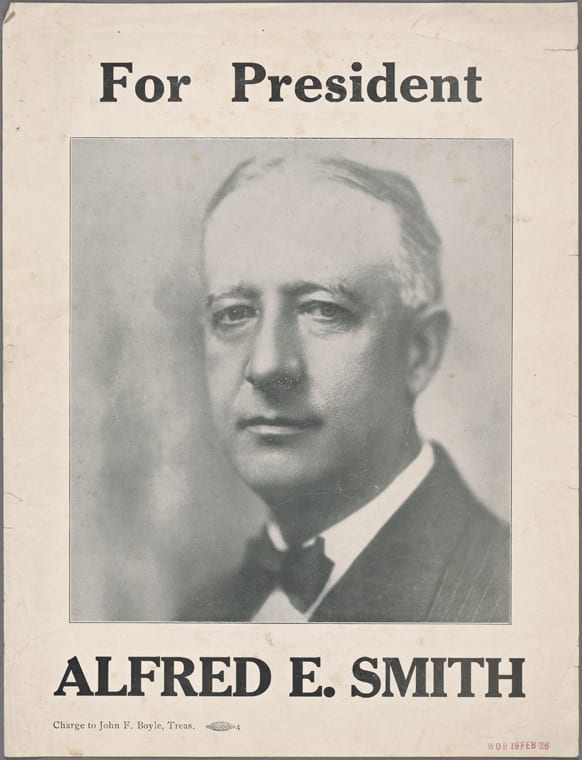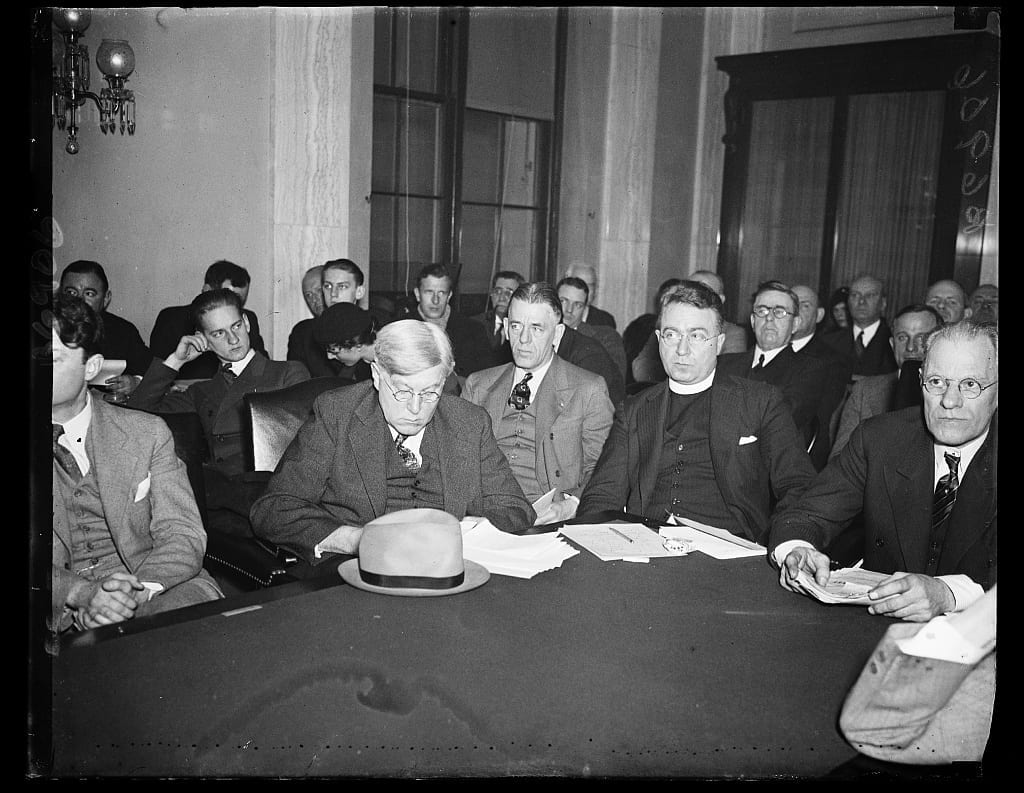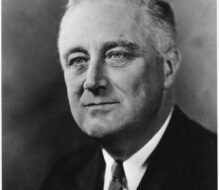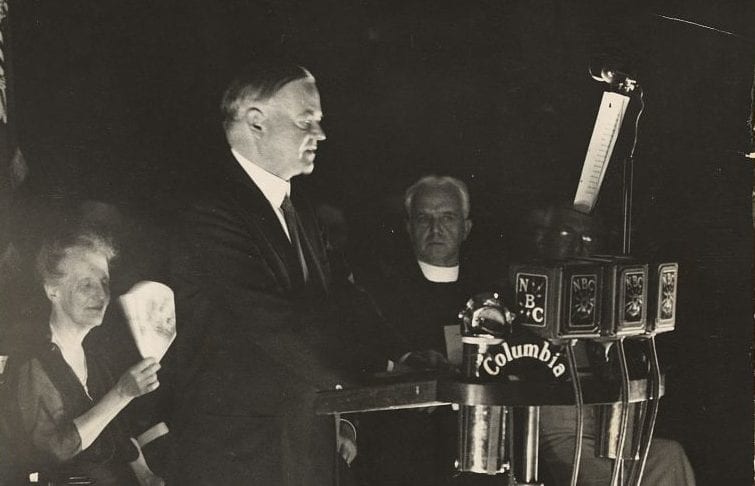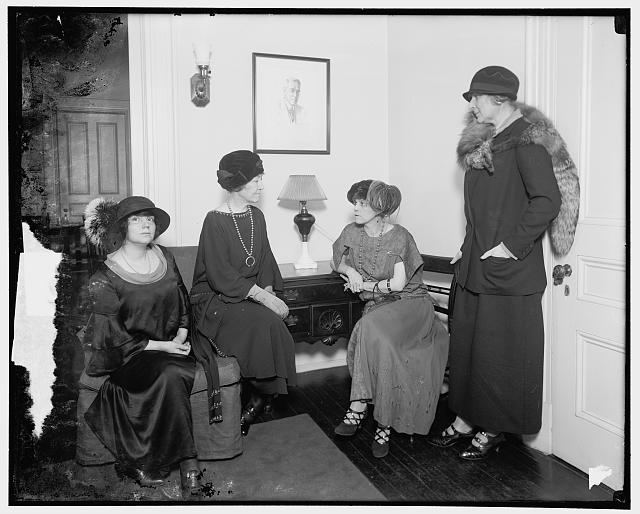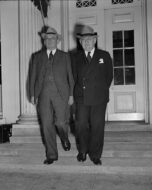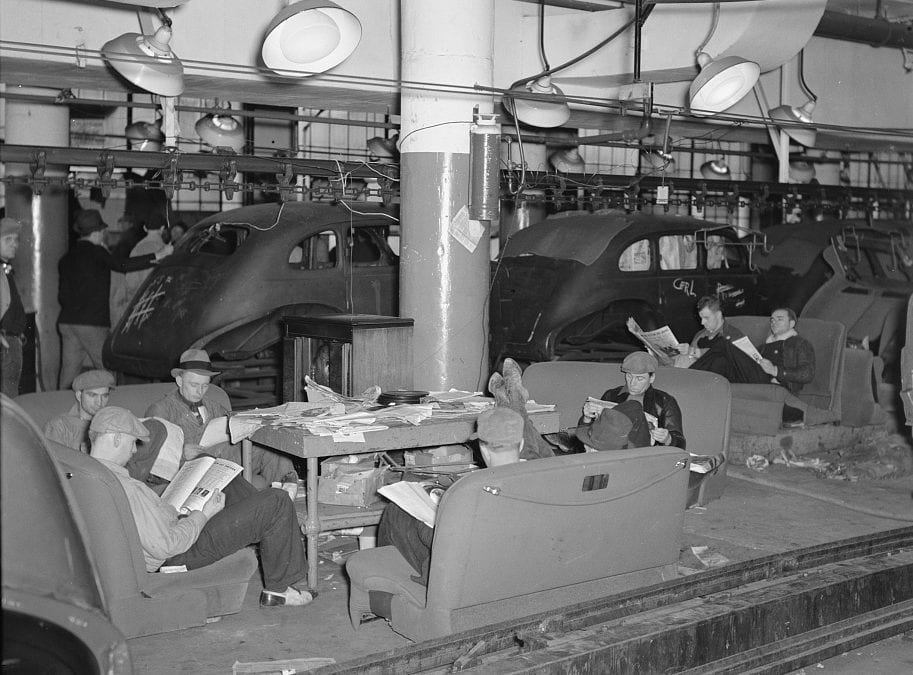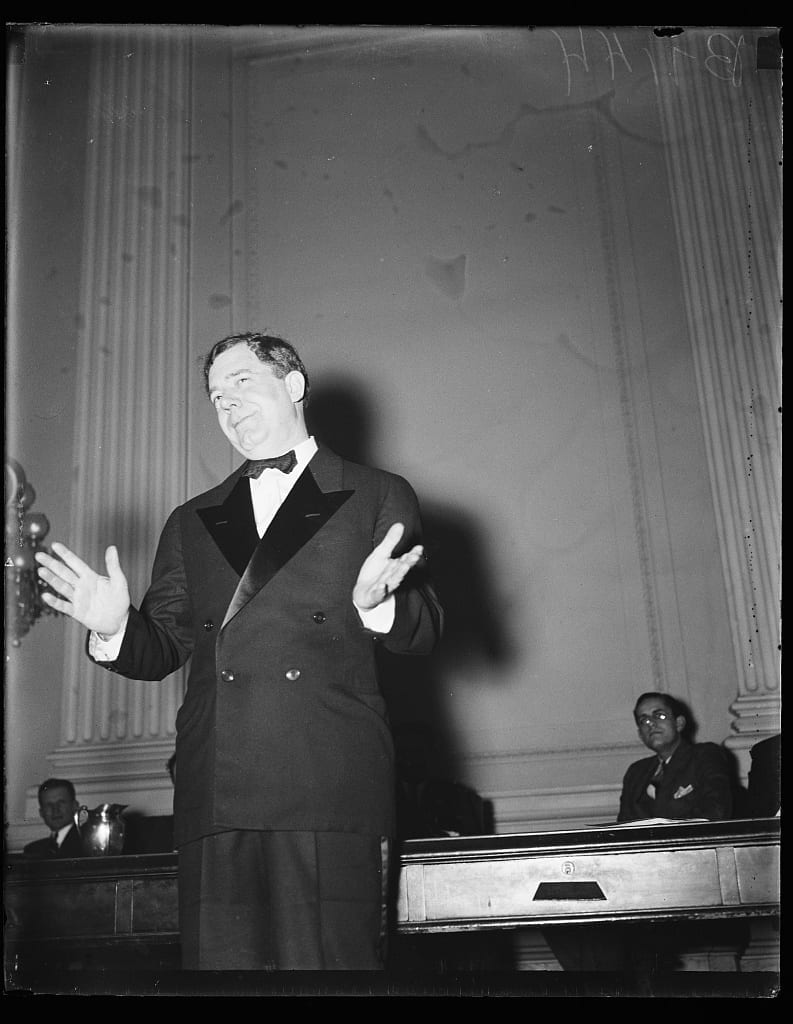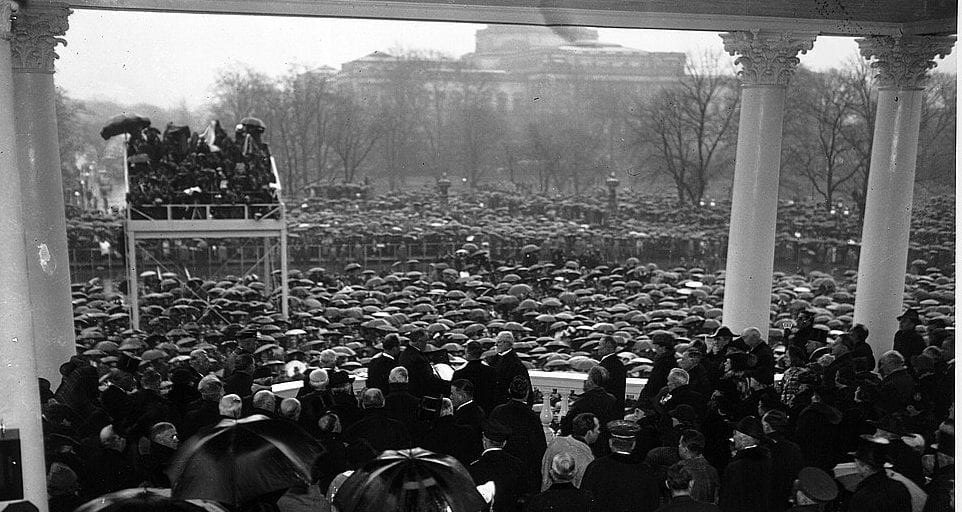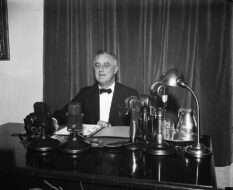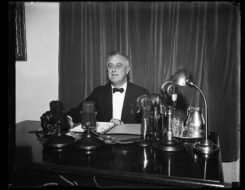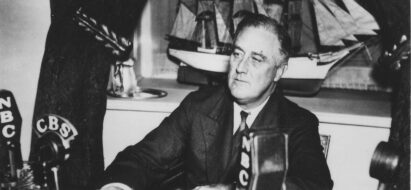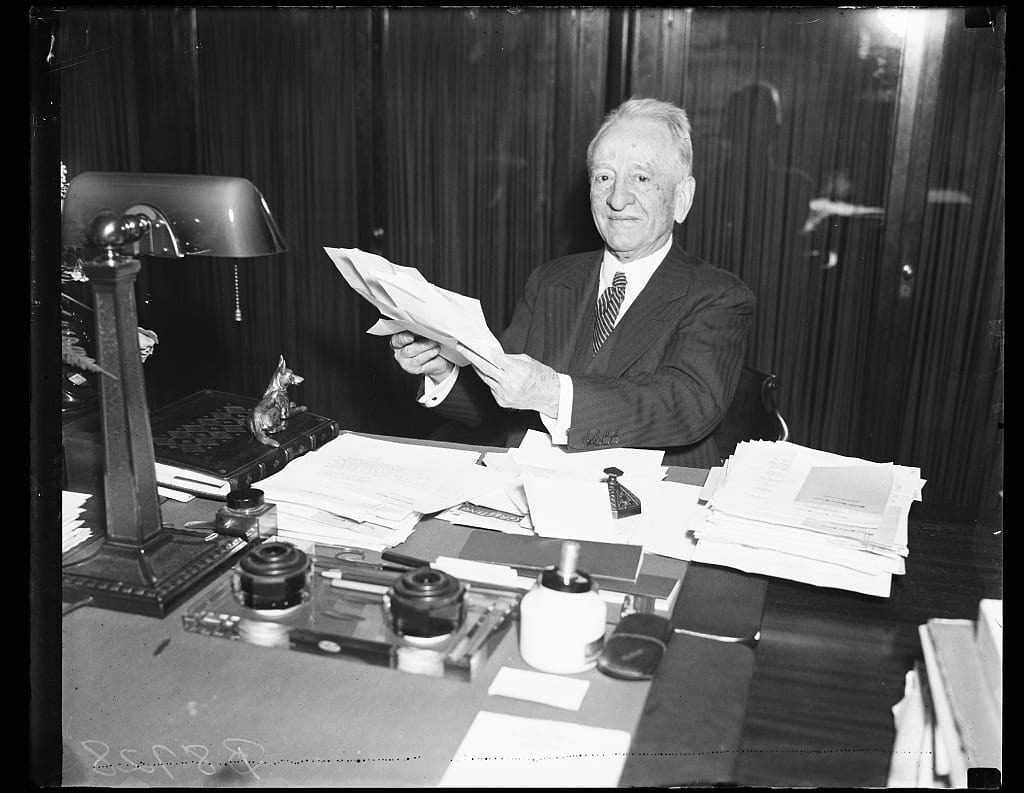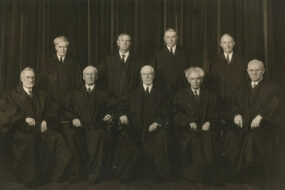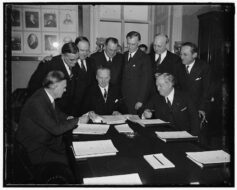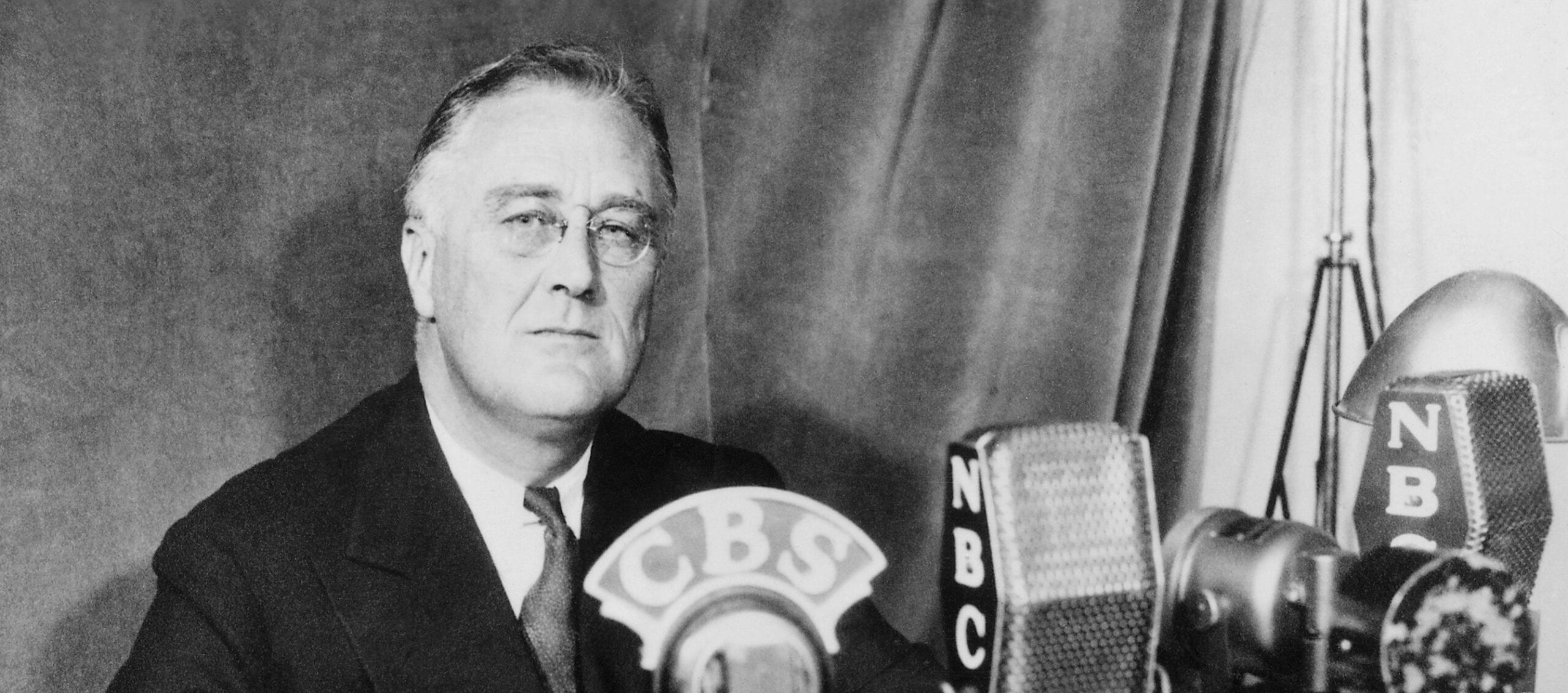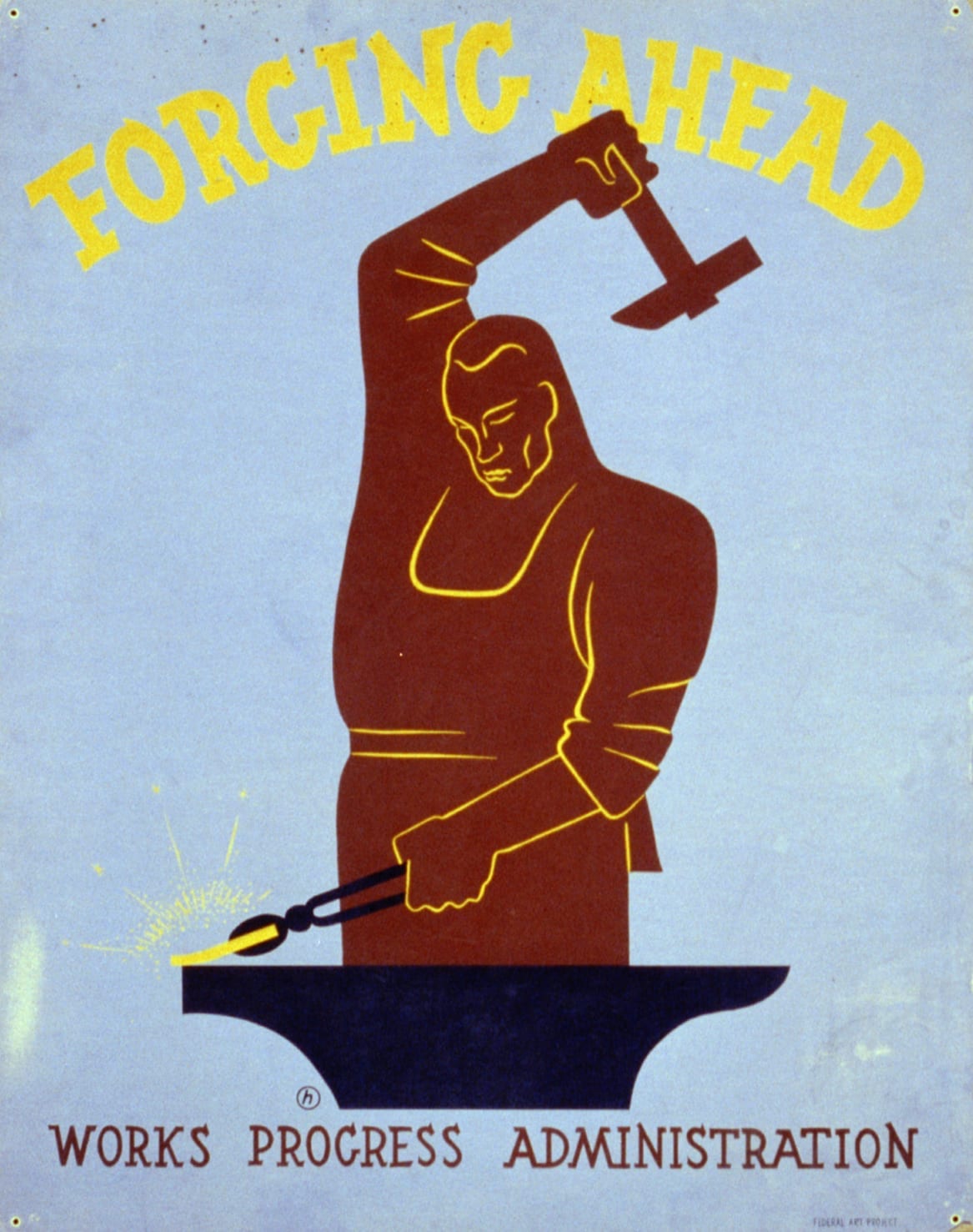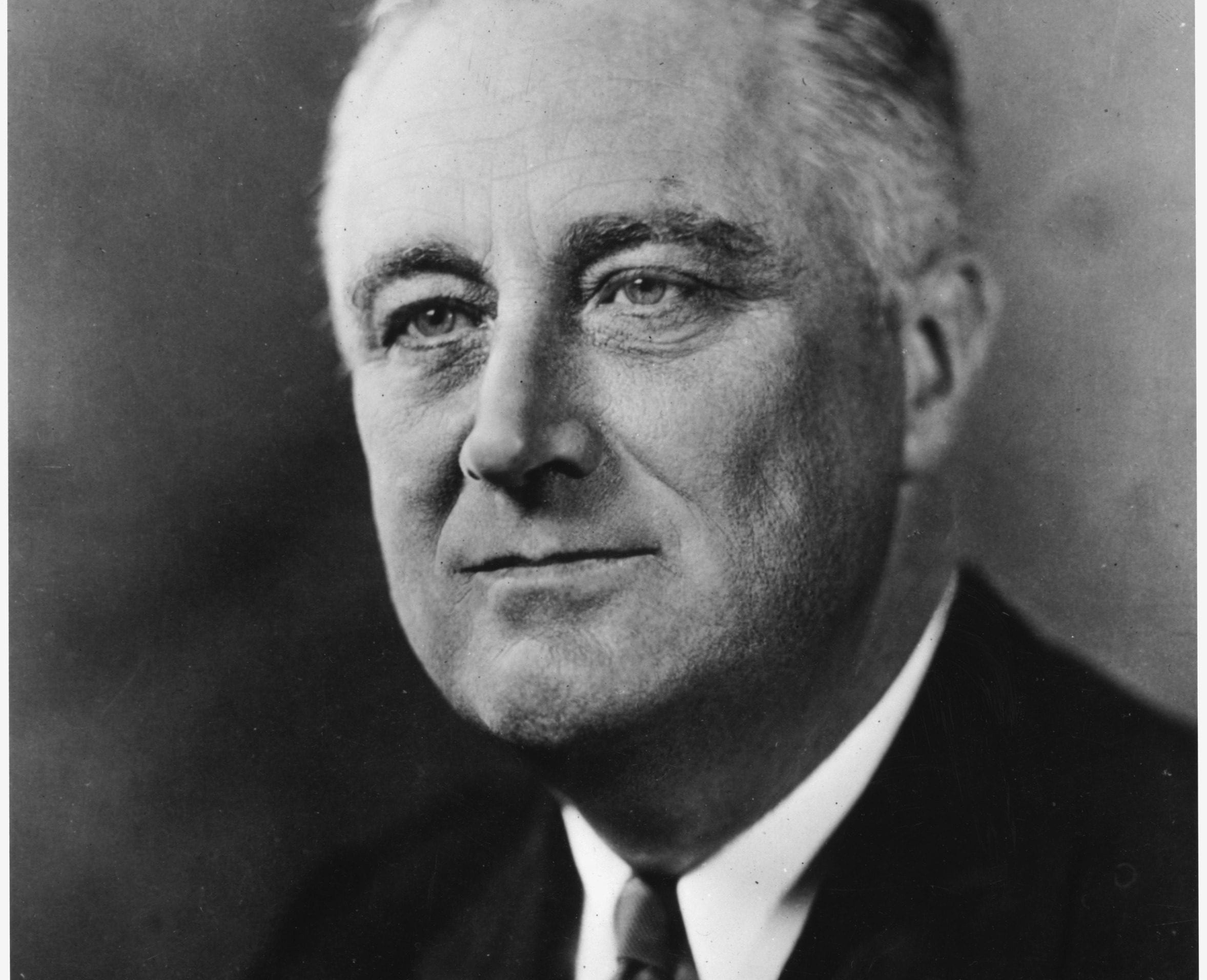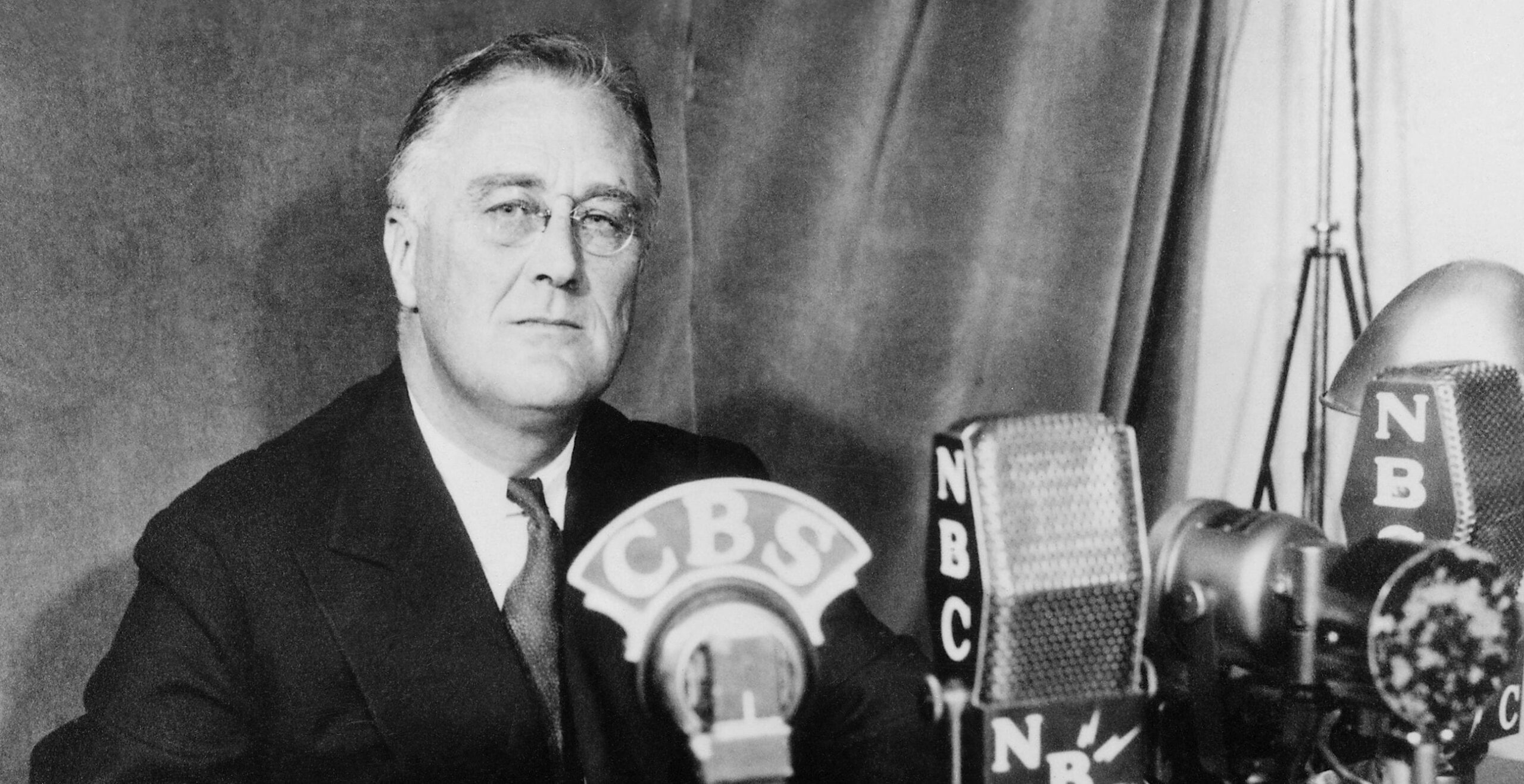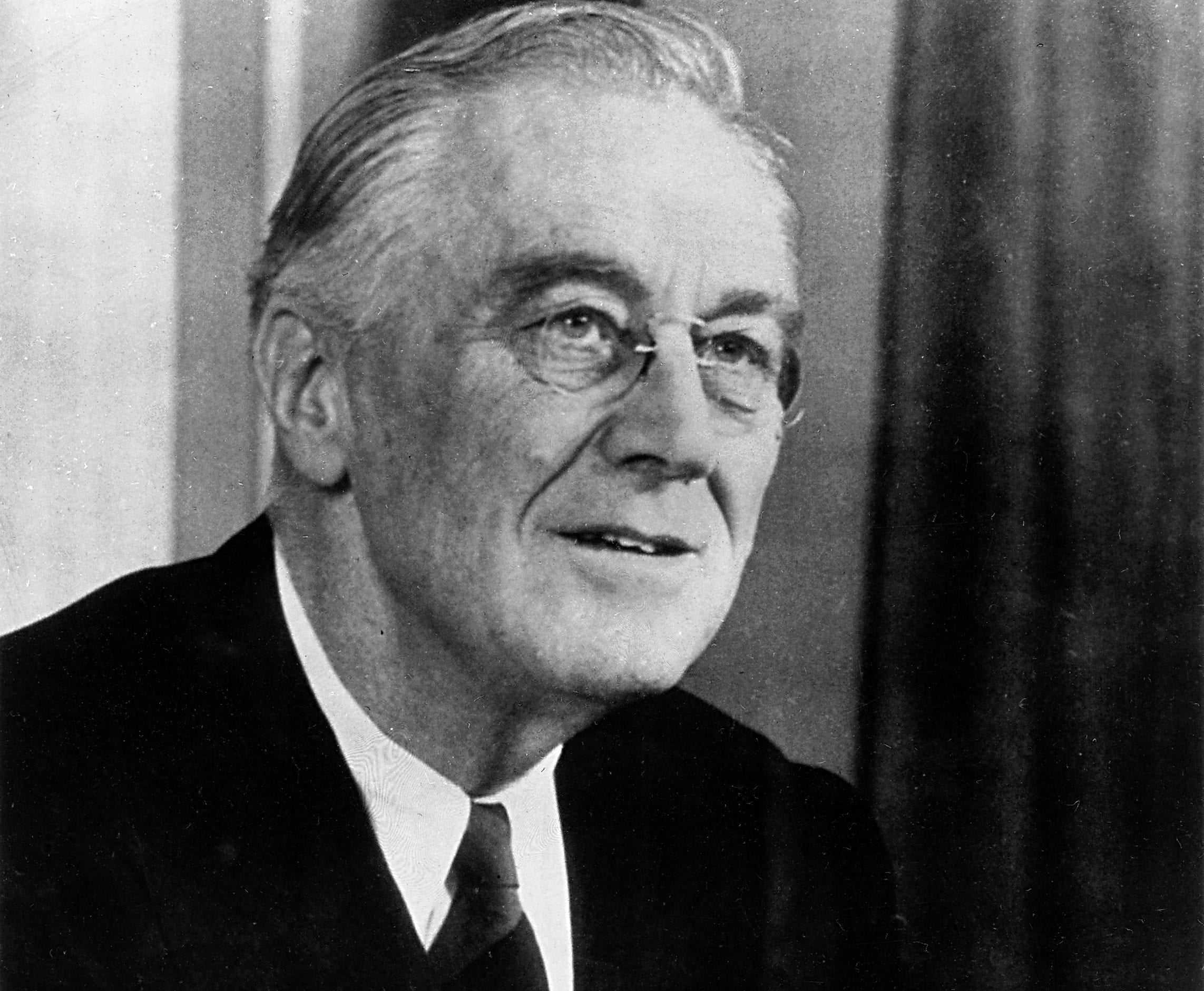

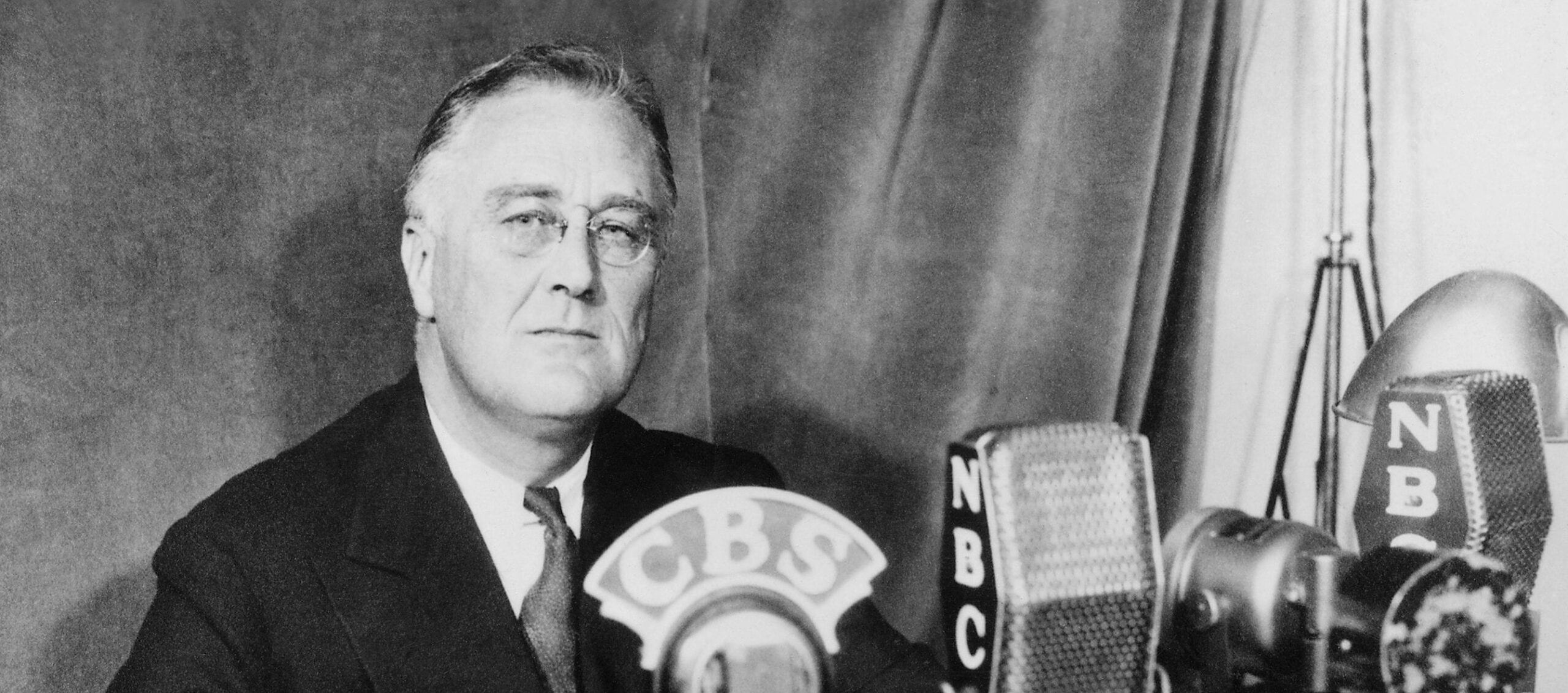
No related resources
Introduction
The economic recovery that had been underway since 1935 continued through the first six months of Roosevelt’s second term. By the middle of 1937 gross national product had finally returned to where it had been in 1930 (although it would be another four years before it would return to pre-Depression levels), and unemployment had fallen to just over 14 percent. However, that summer the situation took a serious turn for the worse. The market value of stocks traded on the New York Stock Exchange dropped by more than 40 percent, manufacturing output fell by 37 percent, and unemployment surged to nearly 19 percent.
What brought this about? There were likely multiple causes. The president, convinced that full-scale recovery was underway, had begun cutting back on spending, and in July announced his intent to submit the first balanced budget of his presidency. New banking regulations increased the size of the cash reserves that banks were required to hold, causing financial institutions to curtail lending. Finally, the first payroll taxes for Social Security were withheld in 1937. All of these led to a significant reduction in the amount of money circulating in the economy.
Whatever the cause, the “recession” (as Roosevelt called it, to distinguish it from the Depression of 1929-1933) posed a serious political problem for the president and his party. As Rep. Maury Maverick (D-TX) admitted to his colleagues in the House, “Now we Democrats have to admit that we are floundering. We have pulled all the rabbits out of the hat, and there are no more rabbits. . . . We are a confused, bewildered group of people, and we are not delivering the goods.” In mid-April President Roosevelt spoke to the American people through his favorite medium – the radio – to announce a massive new spending program that he hoped would put the economy back on the road to recovery.
Source: “Fireside Chat,” April 14, 1938. Online by Gerhard Peters and John T. Woolley, The American Presidency Project. http://www.presidency.ucsb.edu/ws/?pid=15628.
. . . Five years ago we faced a very serious problem of economic and social recovery. For four and a half years that recovery proceeded apace. It is only in the past seven months that it has received a visible setback.
And it is only within the past two months, as we have waited patiently to see whether the forces of business itself would counteract it, that it has become apparent that government itself can no longer safely fail to take aggressive government steps to meet it.
This recession has not returned us to the disasters and suffering of the beginning of 1933. Your money in the bank is safe; farmers are no longer in deep distress and have greater purchasing power; dangers of security speculation have been minimized; national income is almost 50% higher than it was in 1932; and government has an established and accepted responsibility for relief.
But I know that many of you have lost your jobs or have seen your friends or members of your families lose their jobs, and I do not propose that the Government shall pretend not to see these things. I know that the effect of our present difficulties has been uneven; that they have affected some groups and some localities seriously but that they have been scarcely felt in others. But I conceive the first duty of government is to protect the economic welfare of all the people in all sections and in all groups. I said in my Message opening the last session of the Congress that if private enterprise did not provide jobs this spring, government would take up the slack – that I would not let the people down. We have all learned the lesson that government cannot afford to wait until it has lost the power to act.
Therefore, my friends, I have sent a Message of far-reaching importance to the Congress. . . .
I pointed out to the Congress that the national income – not the Government’s income but the total of the income of all the individual citizens and families of the United States – every farmer, every worker, every banker, every professional man and every person who lived on income derived from investments – that national income had amounted, in the year 1929, to eighty-one billion dollars. By 1932 this had fallen to thirty-eight billion dollars. Gradually, and up to a few months ago, it had risen to a total, an annual total; of sixty-eight billion dollars – a pretty good come-back from the low point. . . .
I went on to point out to the Senate and the House of Representatives that all the energies of government and business must be directed to increasing the national income, to putting more people into private jobs, to giving security and a feeling of security to all people in all walks of life.
I am constantly thinking of all our people – unemployed and employed alike – of their human problems, their human problems of food and clothing and homes and education and health and old age. You and I agree that security is our greatest need – the chance to work, the opportunity of making a reasonable profit in our business – whether it be a very small business or a larger one – the possibility of selling our farm products for enough money for our families to live on decently. I know these are the things that decide the well-being of all our people.
Therefore, I am determined to do all in my power to help you attain that security and because I know that the people themselves have a deep conviction that secure prosperity of that kind cannot be a lasting one except on a basis of business fair dealing and a basis where all from the top to the bottom share in the prosperity . . . . I came to the conclusion that the present-day problem calls for action both by the Government and by the people, that we suffer primarily from a failure of consumer demand because of lack of buying power. It is up to us to create an economic upturn. . . .
I went on in my Message today to propose three groups of measures and I will summarize my recommendations.
First, I asked for certain appropriations which are intended to keep the Government expenditures for work relief and similar purposes during the coming fiscal year at the same rate of expenditure as at present. That includes additional money for the Works Progress Administration; additional funds for the Farm Security Administration; additional allotments for the National Youth Administration, and more money for the Civilian Conservation Corps, in order that it can maintain the existing number of camps now in operation.
These appropriations, made necessary by increased unemployment, will cost about a billion and a quarter dollars more than the estimates which I sent to the Congress on the third of January last.
Second, I told the Congress that the Administration proposes to make additional bank reserves available for the credit needs of the country. About one billion four hundred million dollars of gold now in the Treasury will be used to pay these additional expenses of the Government, and three-quarters of a billion dollars of additional credit will be made available to the banks by reducing the reserves now required by the Federal Reserve Board.
These two steps, taking care of relief needs and adding to bank credits, are in our best judgment insufficient by themselves to start the Nation on a sustained upward movement.
Therefore, I came to the third kind of Government action which I consider to be vital. . . .
The third proposal is to make definite additions to the purchasing power of the Nation by providing new work over and above the continuing of the old work.
First, to enable the United States Housing Authority to undertake the immediate construction of about three hundred million dollars worth of additional slum clearance projects.
Second, to renew a public works program by starting as quickly as possible about one billion dollars worth of needed permanent public improvements in our states, and their counties and cities.
Third, to add one hundred million dollars to the estimate for Federal aid highways in excess of the amount that I recommended in January.
Fourth, to add thirty-seven million dollars over and above the former estimate of sixty-three million for flood control and reclamation.
Fifth, to add twenty-five million dollars additional for Federal buildings in various parts of the country.
In recommending this program I am thinking not only of the immediate economic needs of the people of the Nation, but also of their personal liberties – the most precious possession of all Americans. I am thinking of our democracy. I am thinking of the recent trend in other parts of the world away from the democratic ideal.
Democracy has disappeared in several other great nations – disappeared not because the people of those nations disliked democracy, but because they had grown tired of unemployment and insecurity, of seeing their children hungry while they sat helpless in the face of government confusion, government weakness, – weakness through lack of leadership in government. Finally, in desperation, they chose to sacrifice liberty in the hope of getting something to eat. We in America know that our own democratic institutions can be preserved and made to work. But in order to preserve them we need to act together, to meet the problems of the Nation boldly, and to prove that the practical operation of democratic government is equal to the task of protecting the security of the people.
Not only our future economic soundness but the very soundness of our democratic institutions depends on the determination of our Government to give employment to idle men. The people of America are in agreement in defending their liberties at any cost, and the first line of that defense lies in the protection of economic security. Your Government, seeking to protect democracy, must prove that Government is stronger than the forces of business depression.
History proves that dictatorships do not grow out of strong and successful governments but out of weak and helpless governments. If by democratic methods people get a government strong enough to protect them from fear and starvation, their democracy succeeds, but if they do not, they grow impatient. Therefore, the only sure bulwark of continuing liberty is a government strong enough to protect the interests of the people, and a people strong enough and well enough informed to maintain its sovereign control over its government.
We are a rich Nation; we can afford to pay for security and prosperity without having to sacrifice our liberties into the bargain.
In the first century of our republic we were short of capital, short of workers and short of industrial production, but we were rich, very rich in free land, and free timber and free mineral wealth. The Federal Government of those days rightly assumed the duty of promoting business and relieving depression by giving subsidies of land and other resources.
Thus, from our earliest days we have had a tradition of substantial government help to our system of private enterprise. But today the Government no longer has vast tracts of rich land to give away and we have discovered, too, that we must spend large sums of money to conserve our land from further erosion and our forests from further depletion. The situation is also very different from the old days, because now we have plenty of capital, banks and insurance companies loaded with idle money; plenty of industrial productive capacity and many millions of workers looking for jobs. It is following tradition as well as necessity, if Government strives to put idle money and idle men to work, to increase our public wealth and to build up the health and strength of the people – and to help our system of private enterprise to function again.
It is going to cost something to get out of this recession this way but the profit of getting out of it will pay for the cost several times over. Lost working time is lost money. Every day that a workman is unemployed, or a machine is unused, or a business organization is marking time, it is a loss to the Nation. Because of idle men and idle machines this Nation lost one hundred billion dollars between 1929 and the spring of 1933, in less than four years. This year you, the people of this country, are making about twelve billion dollars less than you were last year.
If you think back to the experiences of the early years of this Administration you will remember the doubts and fears expressed about the rising expenses of Government. But to the surprise of the doubters, as we proceeded to carry on the program which included Public Works and Work Relief, the country grew richer instead of poorer.
It is worthwhile to remember that the annual national people’s income was thirty billion dollars more last year in 1937 than it was in 1932. It is true that the national debt increased sixteen billion dollars, but remember that in that increase must be included several billion dollars’ worth of assets which eventually will reduce that debt and that many billion dollars of permanent public improvements – schools, roads, bridges, tunnels, public buildings, parks and a host of other things meet your eye in every one of the thirty-one hundred counties in the United States.
No doubt you will be told that the Government spending program of the past five years did not cause the increase in our national income. They will tell you that business revived because of private spending and investment. That is true in part, for the Government spent only a small part of the total. But that Government spending acted as a trigger, a trigger to set off private activity. That is why the total addition to our national production and national income has been so much greater than the contribution of the Government itself. . . .
The Government contribution of land that we once made to business was the land of all the people. And the Government contribution of money which we now make to business ultimately comes out of the labor of all the people. It is, therefore, only sound morality, as well as a sound distribution of buying power, that the benefits of the prosperity coming from this use of the money of all the people ought to be distributed among all the people – the people at the bottom as well as the people at the top. Consequently, I am again expressing my hope that the Congress will enact at this session a wage and hour bill putting a floor under industrial wages and a limit on working hours – to ensure a better distribution of our prosperity, a better distribution of available work, and a sounder distribution of buying power.1
You may get all kinds of impressions in regard to the total cost of this new program, or in regard to the amount that will be added to the net national debt. It is a big program. Last autumn in a sincere effort to bring Government expenditures and Government income into closer balance, the Budget I worked out called for sharp decreases in Government spending during the coming year. But, in the light of present conditions, conditions of today, those estimates turned out to have been far too low. This new program adds two billion and sixty-two million dollars to direct Treasury expenditures and another nine hundred and fifty million dollars to Government loans – the latter sum, because they are loans, will come back to the Treasury in the future.
The net effect on the debt of the Government is this – between now and July 1, 1939 – fifteen months away – the Treasury will have to raise less than a billion and a half dollars of new money.
Such an addition to the net debt of the United States need not give concern to any citizen, for it will return to the people of the United States many times over in increased buying power and eventually in much greater Government tax receipts because of the increase in the citizen income. . . .
Finally I should like to say a personal word to you.
I never forget that I live in a house owned by all the American people and that I have been given their trust.
I try always to remember that their deepest problems are human. I constantly talk with those who come to tell me their own points of view – with those who manage the great industries and financial institutions of the country – with those who represent the farmer and the worker – and often, very often with average citizens without high position who come to this house. And constantly I seek to look beyond the doors of the White House, beyond the officialdom of the National Capital, into the hopes and fears of men and women in their homes. I have travelled the country over many times. My friends, my enemies, my daily mail bring to me reports of what you are thinking and hoping. I want to be sure that neither battles nor burdens of office shall ever blind me to an intimate knowledge of the way the American people want to live and the simple purposes for which they put me here.
In these great problems of government I try not to forget that what really counts at the bottom of it all is that the men and women willing to work can have a decent job, – a decent job to take care of themselves and their homes and their children adequately; that the farmer, the factory worker, the storekeeper, the gas station man, the manufacturer, the merchant – big and small – the banker who takes pride in the help that he can give to the building of his community – that all of these can be sure of a reasonable profit and safety for the earnings that they make – not for today nor tomorrow alone, but as far ahead as they can see. I can hear your unspoken wonder as to where we are headed in this troubled world. I cannot expect all of the people to understand all of the people’s problems; but it is my job to try to understand all of the problems.
I always try to remember that reconciling differences cannot satisfy everyone completely. Because I do not expect too much, I am not disappointed. But I know that I must never give up – that I must never let the greater interest of all the people down, merely because that might be for the moment the easiest personal way out.
I believe that we have been right in the course we have charted. To abandon our purpose of building a greater, a more stable and a more tolerant America would be to miss the tide and perhaps to miss the port. I propose to sail ahead. I feel sure that your hopes and I feel sure that your help are with me. For to reach a port, we must sail – sail, not lie at anchor, sail, not drift.
- 1. The Fair Labor Standards Act was finally passed in June 1938, to become effective on October 24, 1938. See Roosevelt's Message to Congress on Establishing Minimum Wage and Maximum Hours and Kitchens' Speech on the Fair Labor Standards Act.

Conversation-based seminars for collegial PD, one-day and multi-day seminars, graduate credit seminars (MA degree), online and in-person.
